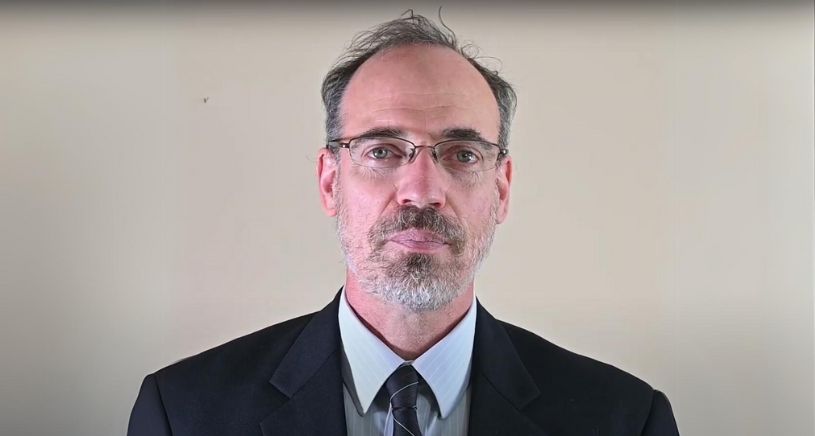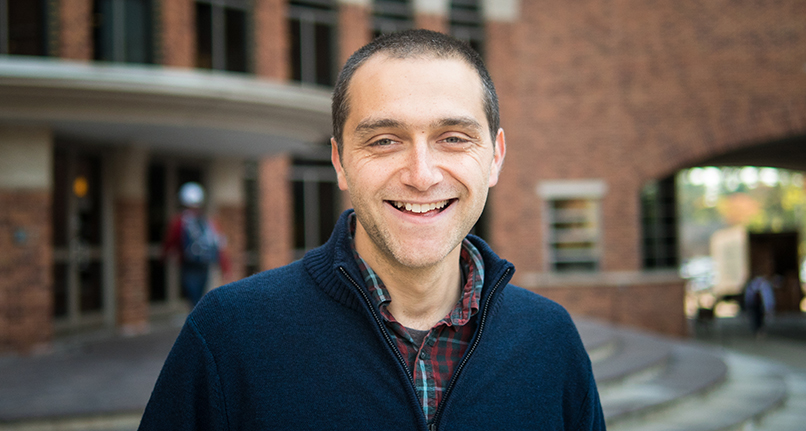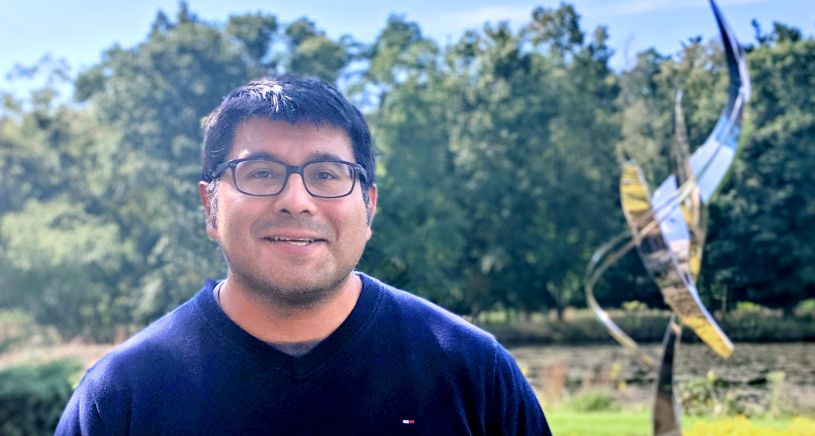Fall Term Courses
BIOSTAT449: Topics In Biostatistics
- Graduate level
- Online MPH only
- This is a second year course for Online students
- term(s) for online MPH students;
- 0 credit hour(s) for online MPH students;
- Instructor(s):
- Prerequisites: Statistics 401 or permission of instructor
- Description: This course will make use of case studies to discuss problems and applications of biostatistics. Topics will include cohort and case control studies, survival analysis with applications in clinical trials, evaluation of diagnostic tests, and statistical genetics. The course will conclude with a survey of areas of current biostatistical research.
- This course is cross-listed with Statistics 449 in the Literature, Science and the Arts department.
BIOSTAT501: Introduction to Biostatistics
- Graduate level
- Online MPH only
- This is a second year course for Online students
- Fall term(s) for online MPH students;
- 2 credit hour(s) for online MPH students;
- Instructor(s): Myra Kim (Online MPH);
- Prerequisites: SPH MPH or permission of instructor
- Description: Statistical methods and principles necessary for understanding and interpreting data used in public health and policy evaluation and formation. Topics include descriptive statistics, graphical data summary, sampling, statistical comparison of groups, correlation, and regression. Students will learn via lecture, group discussions, critical reading of published research, and analysis of data.
- This course is required for the school-wide core curriculum
- Syllabus for BIOSTAT501

| Department | Program | Degree | Competency | Specific course(s) that allow assessment | Population and Health Sciences | MPH | Compare population health indicators across subpopulations, time, and data sources | PUBHLTH515, BIOSTAT592, EPID590, EPID592, EPID643, BIOSTAT595, BIOSTAT501 | Population and Health Sciences | MPH | Estimate population health indicators from high quality data resources from diverse sources | PUBHLTH515, EPID643, NUTR590, BIOSTAT592, BIOSTAT501 |
|---|
BIOSTAT521: Applied Biostatistics
- Graduate level
- Residential
- Fall term(s) for residential students;
- 3 credit hour(s) for residential students;
- Instructor(s): Mousumi Banerjee (Residential);
- Prerequisites: Calculus
- Undergraduates are allowed to enroll in this course.
- Description: Biostatistical analysis provides the means to identify and verify patterns in this data and to interpret the findings in a public health context. In this course, students will learn the basic steps in analyzing public health data, from initial study design to exploratory data analysis to inferential statistics. Specifically, we will cover descriptive statistics and graphical representations of univariate and multivariate data, hypothesis testing, confidence intervals, t-tests, analysis of contingency tables, and simple and multiple linear regression.
- This course is required for the school-wide core curriculum
- Syllabus for BIOSTAT521

| Department | Program | Degree | Competency | Specific course(s) that allow assessment | NUTR | MS | Analyze quantitative data using biostatistics, informatics, computer-based programming and software, as appropriate | BIOSTAT521 |
|---|
BIOSTAT523: Statistical Methods in Epidemiology
- Graduate level
- Residential
- Fall term(s) for residential students;
- 4 credit hour(s) for residential students;
- Instructor(s): Nicholas Hartman (Residential);
- Prerequisites: EPID501 or EPID601 or EPID600; AND BIOSTAT522
- Description: Statistical methods commonly used in environmental epidemiology. Emphasis on choosing appropriate statistical methods and subsequent interpretation. Topics include probability, measures of association and risk, sample size calculations, SMR and PMR analysis, logistic regression and survival analysis.
- Syllabus for BIOSTAT523

BIOSTAT593: Design for Health Studies
- Graduate level
- Online MPH only
- This is a first year course for Online students
- Spring-Summer term(s) for online MPH students;
- 1 credit hour(s) for online MPH students;
- Instructor(s): Roderick Little (Online MPH);
- Prerequisites: Biostat 501 and Pubhlth 512
- Description: Many courses in Biostatistics focus on how to analyze data, with little attention being paid to where the data came from and how it was collected. This course focuses on the design of health investigations, with particular attention to the role of randomization in the selection of units and the allocation of treatments. The first part will focus on probability sampling designs and alternatives for the selection of units from a population. The second part concerns study designs for comparing treatments or assessing potential risk factors for health outcomes. These designs include randomized clinical trials, prospective and retrospective observational studies, and clinical data bases. Key concepts include accuracy and precision of estimates, the definition of causal effects, internal validity and the role of measured and unmeasured confounders, and external validity and the role of effect modification on the generalizability of study findings. Examples of randomized and nonrandomized studies will be included to illustrate concepts. Students will be assigned readings and asked to assess design strengths and weaknesses. Quizzes will be assigned to assess knowledge of the key concepts.
- Learning Objectives: (a) Learn key features of probability sample designs -- random sampling, stratification, clustering, multistage sampling. Understand potential limitations of purposive sampling designs, and techniques to reduce the potential bias from such designs (b) Review the main study designs for the comparison of treatments and potential risk factors for a health outcome, including randomized clinical trials, prospective and retrospective longitudinal studies, case-control studies, analyses of clinical data bases. Understand the strengths and weaknesses of these alternative designs. (c) Understand how the interpretation of statistical inferences is affected by the choice of study designs.

BIOSTAT594: Applied Generalized Linear Models
- Graduate level
- Online MPH only
- This is a second year course for Online students
- Fall term(s) for online MPH students;
- 3 credit hour(s) for online MPH students;
- Instructor(s): Trivellore Raghunathan (Online MPH);
- Prerequisites: BIOSTAT501, BIOSTAT591, BIOSTAT592
- Description: This course introduces public health Master's students to generalized linear models to analyze binary, discrete, ordinal, count, survival outcomes.The primary emphasis will be interpretation, inference and hands-on data analyses. We will use R to analyze public health datasets, evaluate regression assumptions, and assess model fit.
- Learning Objectives: 1. Understand the context where non-continuous outcome data are generated, identify the most relevant aspects of these data that require modeling and formulate a scientific question in terms of one or a few model parameters 2. To develop the ability to use R to analyze public health data using GLM 3. Interpret results of data analysis for public health research, policy or practice
- This course is cross-listed with .

BIOSTAT595: Applied Longitudinal Analysis Using R
- Graduate level
- Online MPH only
- This is a first year course for Online students
- Fall term(s) for online MPH students;
- 2 credit hour(s) for online MPH students;
- Instructor(s): Matt Zawistowski (Online MPH);
- Prerequisites: Biostat 501, Biostat 591, Biostat 592
- Description: This course provides an overview of statistical methods for analyzing correlated data produced by longitudinal measurements taken over time. Topics include study design, exploratory data analysis techniques and linear mixed effects regression models. This course provides practical concepts and hands-on R computing skills to perform longitudinal data analysis.
- Learning Objectives: 1. Identify causes and patterns of correlated outcomes in health data 2. Perform exploratory data analysis of longitudinal outcomes 3. Fit linear mixed effects regression models 4. Interpret and perform hypothesis testing of regression parameters for mixed models

| Department | Program | Degree | Competency | Specific course(s) that allow assessment | Population and Health Sciences | MPH | Compare population health indicators across subpopulations, time, and data sources | PUBHLTH515, BIOSTAT592, EPID590, EPID592, EPID643, BIOSTAT595, BIOSTAT501 |
|---|
BIOSTAT600: Introduction to Biostatistics
- Graduate level
- Residential
- Fall term(s) for residential students;
- 2 credit hour(s) for residential students;
- Instructor(s): Matt Zawistowski (Residential);
- Prerequisites: Biostatistics students only
- Description: This course is planned as a refresher course in mathematical underpinnings that are key to statistics, like calculus, probability and linear algebra followed by discussion of basic statistical methods and concepts for all entering Biostatistics masters (and some doctoral) students. Its purpose is to prepare students for subsequent biostatistical courses.
- Syllabus for BIOSTAT600

BIOSTAT601: Probability and Distribution Theory
- Graduate level
- Residential
- Fall term(s) for residential students;
- 4 credit hour(s) for residential students;
- Instructor(s): Irina Gaynanova (Residential);
- Prerequisites: Three terms of calculus
- Description: Fundamental probability and distribution theory needed for statistical inference. Probability, discrete and continuous distributions, expectation, generating functions, limit theorems, transformations, sampling theory.
- Syllabus for BIOSTAT601

| Department | Program | Degree | Competency | Specific course(s) that allow assessment | BIOSTAT | MS | Apply the theoretical foundations of probability theory and distribution theory | BIOSTAT601 |
|---|
BIOSTAT607: Basic Computing For Data Analytics
- Graduate level
- Residential
- Fall term(s) for residential students;
- 1-3 credit hour(s) for residential students;
- Instructor(s): Nicholas Henderson (Residential);
- Prerequisites: No other courses
- Advisory Prerequisites: It is recommended that students with no programming knowledge co-enroll in Biostat 600 or contact the instructor to discuss the best options
- Description: This course is designed as a 3-credit modular course focusing on basic programming skills, including Python (1 credit), R (1 credit), and C++ (1 credit). The course covers key features of each programming language, data structures, basic data processing skills, basic data visualization skills (for Python and R), and basic UNIX skills. Students are allowed to take one or more modules according to the need basis.
- Learning Objectives: (a) To understand key features of R, python, and C++ programming languages in a modular way. (b) To understand basic data structures, basic data processing skills, basic data visualization skills (for Python and R modules), and basic UNIX skills
- Syllabus for BIOSTAT607

BIOSTAT610: Readings in Biostatistics
- Graduate level
- Residential
- Fall, Winter term(s) for residential students;
- 1-4 credit hour(s) for residential students;
- Instructor(s): Staff (Residential);
- Prerequisites: One of Biostat 503, Biostat 524, Biostat 553 or Biostat 601/Biostat 602
- Description: Independent study in a special topic under the guidance of a faculty member. May be elected more than once. Enrollment is limited to biostatistics majors.
BIOSTAT611: Grad School And Professional Success Skills
- Graduate level
- Residential
- Fall term(s) for residential students;
- 1 credit hour(s) for residential students;
- Instructor(s): Kelley Kidwell (Residential);
- Prerequisites: None
- Advisory Prerequisites: N/A
- Description: This course complements the Biostatistics curriculum in providing more tailored content to succeed as a student, on the job market, and professionally on the job. This discussion includes didactic lectures and activities led by instructors and guest speakers.
- Learning Objectives: Learn skills to survive and thrive as a Biostatistics MS student. Discuss the variety of career opportunities for biostatisticians. Prepare for internship and job opportunities. Learn skills to be a successful professional across a variety of fields.

BIOSTAT615: Statistical Computing
- Graduate level
- Residential
- Fall term(s) for residential students;
- 3 credit hour(s) for residential students;
- Instructor(s): Hyun Min Kang (Residential);
- Prerequisites: None
- Description: A survey of key algorithms for statistical computing and its applications in Biostatistics. The course will cover fundamental computational techniques for dynamic programming, sorting, and searching, as well statistical methods for random number generation, numerical integration, function optimization, Markov-Chain Monte Carlo, and the E-M algorithm. Enables students to understand numerical results produced by a computer and to implement their own statistical methods.
- Syllabus for BIOSTAT615

BIOSTAT619: Clinical Trials
- Graduate level
- Residential
- Fall term(s) for residential students;
- 3 credit hour(s) for residential students;
- Instructor(s): Bingkai Wang (Residential);
- Prerequisites: Biostatistics 601 and Biostatistics 651
- Description: This course is designed for individuals with a strong quantitative background who are interested in the statistical design and analysis aspects of clinical trials and the interface between statistics and policy in this area
- Syllabus for BIOSTAT619

BIOSTAT625: Computing with Big Data
- Graduate level
- Residential
- Fall term(s) for residential students;
- 3 credit hour(s) for residential students;
- Instructor(s): Hui Jiang (Residential);
- Prerequisites: R module in BIOSTAT 607 or equivalent.
- Description: This course will cover techniques for computing with big data. The topics include programming, data processing, debugging, profiling and optimization, version control, software development, interfacing with databases, interfacing between programming languages, visualization, high performance and cloud computing. Hands-on experience will be emphasized in lectures, homework assignments and projects.
- Learning Objectives: (a) To master techniques for manipulating and processing big data by writing customized computer programs. (b) To understand the foundation for the computing aspects of data science. (c) To have a practical understanding of important computing issues for health big data analysis.
- Syllabus for BIOSTAT625

| Department | Program | Degree | Competency | Specific course(s) that allow assessment | BIOSTAT | Health Data Science | MS | Apply basic informatics and computational techniques in the analysis of big health data, and interpret results of statistical analysis | BIOSTAT625 |
|---|
BIOSTAT640: Data Science Seminar
- Graduate level
- Residential
- Fall term(s) for residential students;
- 1 credit hour(s) for residential students;
- Instructor(s): H.V. Jagadish (Residential);
- Not offered 2026-2027
- Prerequisites: None
- Description: The MIDAS Seminar Series features leading data scientists from around the world and across the U-M campuses addressing a variety of topics in data science, and sharing their vision regarding the future of the field. These thought leaders are invited from academia, industry and government.
- Learning Objectives: To learn about the a wide variety of research and application in data science in both academic and business settings.
- This course is cross-listed with EECS409 in the Engineering/LSA/SOI department.
BIOSTAT642: Introduction to Functional MRI
- Graduate level
- Residential
- Fall term(s) for residential students;
- 3 credit hour(s) for residential students;
- Instructor(s): Staff (Residential);
- Not offered 2026-2027
- Prerequisites: None
- Description: This course presents the basic skills to design and analyze functional magnetic resonance imaging (fMRI) experiments. We start by reviewing the basic Matlab and Unix skills necessary to manipulate image data. Next we introduce the principles of MRI and the nature of the Blood Oxygenation Level Dependent (BOLD) effect, including artifacts that corrupt the BOLD signal. We cover blocked and event-related designs, and how to optimize statistical power of design. We cover subject safety.
- Syllabus for BIOSTAT642
BIOSTAT645: Time Series Analysis with Biomedical Applications
- Graduate level
- Residential
- Fall term(s) for residential students;
- 3 credit hour(s) for residential students;
- Instructor(s): Staff (Residential);
- Not offered 2026-2027
- Prerequisites: Biostat 602, Biostat 650 or Perm. Instr
- Description: Introduction to statistical time series analysis with an emphasis on frequency domain (spectral) methods and their applications to biomedical problems. Topics include autocorrelation, stationarity, autoregressive and moving average processes, power spectra, periodgrams, spectral estimation, linear filters, complex demodulation, autoregressive integrated moving average (ARIMA) models, cross-correlation, cross-spectra, coherence, time and frequency domain linear regression. The methods will be illustrated in applications to various areas of public health and medical research such as environmental health, electrophysiology, and endocrinology.
- Syllabus for BIOSTAT645
BIOSTAT650: Theory and Application of Linear Regression
- Graduate level
- Residential
- Fall term(s) for residential students;
- 4 credit hour(s) for residential students;
- Instructor(s): Lu Wang (Residential);
- Prerequisites: BIOSTAT601
- Description: Graphical methods, simple and multiple linear regression; simple, partial and multiple correlation; estimation; hypothesis testing, model building and diagnosis; introduction to nonparametric regression; introduction to smoothing methods (e.g., lowess) The course will include applications to real data.
- Syllabus for BIOSTAT650

| Department | Program | Degree | Competency | Specific course(s) that allow assessment | BIOSTAT | MS | Perform linear regression model fitting and diagnosis | BIOSTAT650 | BIOSTAT | PhD | Perform linear regression model fitting and diagnosis | BIOSTAT650 |
|---|
BIOSTAT653: Theory And Application Of Longitudinal Analysis.
- Graduate level
- Residential
- Fall term(s) for residential students;
- 3 credit hour(s) for residential students;
- Instructor(s): Zhenke Wu (Residential);
- Prerequisites: BIOSTAT650 and BIOSTAT651
- Description: This course overviews the statistical models and methodologies for analyzing repeated measures/longitudinal data. It covers general linear models and linear mixed models for analyzing correlated continuous data, as well as marginal (i.e. GEE), conditional (i.e. generalized linear mixed model) and transition models for analyzing correlated discrete data.
- Syllabus for BIOSTAT653

| Department | Program | Degree | Competency | Specific course(s) that allow assessment | BIOSTAT | MS | Perform ANOVA analysis and longitudinal data analysis | BIOSTAT653 | BIOSTAT | PhD | Perform statistical analysis for longitudinal data and correlated data | BIOSTAT653 |
|---|
BIOSTAT680: Applications of Stochastic Processes I
- Graduate level
- Residential
- Fall term(s) for residential students;
- 3 credit hour(s) for residential students;
- Instructor(s): William Wen (Residential);
- Prerequisites: Biostat 601 and Math 450 or equiv
- Description: Conditional distributions, probability generating functions, convolutions, discrete and continuous parameter, Markov chains, medical and health related applications.
- Syllabus for BIOSTAT680

BIOSTAT681: Introduction to Causal Inference
- Graduate level
- Residential
- Fall term(s) for residential students;
- 3 credit hour(s) for residential students;
- Instructor(s): Michael Elliot (Residential);
- Prerequisites: None
- Advisory Prerequisites: Biostats 601, 602, 650, and 651
- Description: This course is designed to introduce students to basic of causal inference, including potential outcomes, counterfactuals, confounding, mediation, and instrumental variables. We will explore the identification and estimation of causal effects via the use of principle stratification, marginal structural models, and directed acyclic graphs.
- Learning Objectives: At the end of the course, students should be able to -Define concepts including potential outcomes, confounding, and mediation. -Explain the purpose of randomization for causal inference. -Explain the concept of principal stratification/casual association and use the relevant statistical methods to make causal inference under the casual association paradigm. -Explain the concepts of direct and indirect effects/casual effects and use the relevant statistical methods to make causal inference under the casual effects paradigm. -Understand how instrumental variables can be related to other causal inference approaches. -Consider the use of directed acyclic graphs (DAGs) to define causal concepts and derive conditions of identifiability.
- Syllabus for BIOSTAT681

BIOSTAT682: Applied Bayesian Inference
- Graduate level
- Residential
- Fall term(s) for residential students;
- 3 credit hour(s) for residential students;
- Instructor(s): Jian Kang (Residential);
- Prerequisites: Biostat 602, Biostat 650 and Biostat 651
- Description: Introduction to Bayesian Inference. Bayesian large sample inference, relationship with maximum likelihood. Choice of model, including prior distribution. Bayesian approaches to regression generalized linear models, categorical data, and hierarchical models. Empirical Bayes methods. Comparison with frequentist methods. Bayesian computational methods. Assessment of sensitivity to model assumptions. Emphasis on biomedical applications.
- Syllabus for BIOSTAT682

BIOSTAT687: Statistical Methods For Health Disparity Research
- Graduate level
- Residential
- Fall term(s) for residential students;
- 3 credit hour(s) for residential students;
- Instructor(s): Trivellore Raghunathan (Residential);
- Not offered 2026-2027
- Prerequisites: Biostat 601, 602, 650 and 651 or equivalents
- Advisory Prerequisites: Biostat 682 or Biostat 675
- Description: Healthy People initiatives over the past several decades have been developed to eliminate health disparities. The objective of this course is to consider several statistical methodological issues in assessing and understanding the reasonings behind health disparities. There is a strong need for bringing together a set of statistical methods to address design, measurement and analysis tuned to health disparity research.
- Learning Objectives: .1. Understand historical perspectives on health disparities and determinants of health 2. Understand various measures of health disparity and methods for constructing inferences about them 3. Understand methods for analyzing data from complex surveys 4. Understand methods for assessing psychometric properties of measurements used in health disparity research across subpopulations through measurement error and Item response theory modeling 5. Understand statistical techniques to assess the reasons for health disparity using regression, propensity score and causal inferential techniques 6. Understand small area/domain estimation techniques to understand geographical variation in health disparities
- Syllabus for BIOSTAT687

BIOSTAT690: Health Applications of Multivariate Analysis
- Graduate level
- Residential
- Fall, Winter term(s) for residential students;
- 3 credit hour(s) for residential students;
- Instructor(s): Staff (Residential);
- Not offered 2026-2027
- Prerequisites: Biostat 650 and Biostat 651 and Math 417 or Perm. Instr.
- Description: Techniques of multivariate analysis related to health and biomedical problems. Emphasis on computational techniques and programs with health examples. Tests of significance for one, two or more populations; general linear model; multivariate analyses of variances and covariances; correlation procedures; principal components and discriminant analyses.
- Syllabus for BIOSTAT690
BIOSTAT698: Modern Statistical Methods in Epidemiologic Studies
- Graduate level
- Residential
- Fall term(s) for residential students;
- 4 credit hour(s) for residential students;
- Instructor(s):
- Not offered 2026-2027
- Prerequisites: EPID600, BIOSTAT522 and BIOSTAT523 for epid students; BIOSTAT650, BIOSTAT651 for biostat students
- Advisory Prerequisites: EPID 798 for epid students; BIOSTAT 695 for Biostat students
- Description: The goal of this pilot course is to create an interdisciplinary educational experience for Ph.D. students in Epidemiology (also available as an optional elective for Masters students in Biostatistics) through a uniquely designed course that contains lectures on advanced biostatistical methods, but places them in the context of epidemiological applications.
- This course is cross-listed with EPID815.
- Syllabus for BIOSTAT698
BIOSTAT800: Seminar in Biostatistics
- Graduate level
- Residential
- Fall, Winter term(s) for residential students;
- 0.5 credit hour(s) for residential students;
- Instructor(s): Bingkai Wang, Dylan Cable, (Residential);
- Prerequisites: Graduate level Biostatistics students only
- Description: Presentations and discussions of current consulting and research problems. Enrollment limited to biostatistics majors. Students must attend 2/3 of all seminars offered during the semester to receive credit. Maximum credit is 0.5 per semester. No more than 1 credit total allowed. May only be taken a maximum of 2 semesters.


BIOSTAT801: Advanced Inference I
- Graduate level
- Residential
- Fall term(s) for residential students;
- 3 credit hour(s) for residential students;
- Instructor(s): Alexander Tsodikov (Residential);
- Prerequisites: Biostat 601, Biostat 602, and MATH 451 or equivalent
- Description: This is the first course of the sequence that covers advanced topics in probability theory, theory of point estimation, theory of hypothesis testing, and related large sample theory.
- Syllabus for BIOSTAT801

| Department | Program | Degree | Competency | Specific course(s) that allow assessment | BIOSTAT | PhD | Apply the advanced probability theory and distribution theory | BIOSTAT801 |
|---|
BIOSTAT803: Biostatistics in Cancer Seminar
- Graduate level
- Residential
- Fall term(s) for residential students;
- 1 credit hour(s) for residential students;
- Instructor(s): Jeremy Taylor (Residential);
- Prerequisites: Perm. Instr.
- Description: The purpose of this research seminar class is to describe biostatistical research that is occurring in cancer researcher. The course will consist of presentations by speakers describing their research.
- Syllabus for BIOSTAT803

BIOSTAT810: Approaches to the Responsible Practice of Biostatistics
- Graduate level
- Residential
- Fall term(s) for residential students;
- 1 credit hour(s) for residential students;
- Instructor(s): Kelley Kidwell (Residential);
- Prerequisites: None
- Description: This course will cover a series of topics that encompass Responsible Conduct of Research and Scholarship (RCRS) as defined by the National Institutes of Health (NIH), as well as focus upon the written and oral communication skills necessary for effective collaboration with public health investigators.
- Syllabus for BIOSTAT810

BIOSTAT820: Readings in Biostatistics
- Graduate level
- Residential
- Fall, Winter, Spring-Summer term(s) for residential students;
- 1-4 credit hour(s) for residential students;
- Instructor(s): Staff (Residential);
- Prerequisites: None
- Description: Students assigned special topics for literature study under guidance of individual faculty members. May be elected more than once. Enrollment limited to biostatistics majors.
BIOSTAT830: Advanced Topics In Biostatistics
- Graduate level
- Residential
- Fall term(s) for residential students;
- 1-3 credit hour(s) for residential students;
- Instructor(s): Donglin Zeng (Residential);
- Prerequisites: course/instructor dependent
- Description: Advanced training in biostatistical methods primarily for doctoral students. Format will include lectures, readings, presentations and discussions in an area of special interest to students and faculty, such as stopping rules and interim analysis in clinical trials, conditional and unconditional inference and ancillarity, or nonparametric regression.
- This course is cross-listed with .
- Syllabus for BIOSTAT830

BIOSTAT840: Advanced Topics in Data Analysis
- Graduate level
- Residential
- Fall, Winter, Spring-Summer term(s) for residential students;
- 3 credit hour(s) for residential students;
- Instructor(s): Staff (Residential);
- Not offered 2026-2027
- Prerequisites: Biostat 650 and Biostat 651
- Description: Alternate methods of data analysis useful when data do not fulfill unusual assumptions of statistical tests. Using articles from the literature, students learn methods of data analysis more robust than usual methods and how to choose among them. Focuses on comparison of groups, ANOVA and regression.
BIOSTAT842: Seminal Ideas and Controversies in Statistics
- Graduate level
- Residential
- Fall term(s) for residential students;
- 3 credit hour(s) for residential students;
- Instructor(s): Roderick Little (Residential);
- Not offered 2026-2027
- Prerequisites: Ph.D. students in Biostatistics, Statistics or related field (e.g. Survey Methodology)
- Advisory Prerequisites: None
- Description: Statistics has developed as a field through seminal papers and fascinating controversies. Seminal ideas and controversies in statistics will be reviewed and discussed. Students will be assigned to present and discuss key papers, with the aid of later commentaries in the literature that help elucidate the issues. The goal is to expand student's knowledge of the statistics literature and encourage a historical perspective. A draft list of papers, arranged below by topic, is provided; in additional to original papers there are some more recent commentaries that provides a modern perspective. Topics are arranged in three groupings: (a) philosophy of statistics; (b) seminal problems in statistical analysis (c) design topics, focusing on the role of randomization. The instructor will also present summaries of the topics covered. Students will be assigned homework with a few basic discussion questions about the assigned paper or papers. Also, one "lead presenter" student or students will prepare and deliver a presentation summarizing each topic and paper(s). For the class to work it is essential that students read the assigned material, participate in class discussions, and express their own opinions on the homework questions - often there is not a "right" answer.
- Learning Objectives: After completing this class, students are expected to be able to attain the following competencies: (a) Demonstrate effective written, oral and thinking skills Biostatistics Competencies: (1) To learn some key ideas and concepts in statistics concerning philosophy of inference, statistical methods and statistical design, through seminal articles (b) To learn how to read a research paper and understand the key concepts (c) To learn how to develop clear and logical written and oral presentations based on reading seminal articles in statistics (c) To start to develop a personal philosophy for statistical practice
- Syllabus for BIOSTAT842

BIOSTAT851: Linear Statistical Models (Stat 642)
- Graduate level
- Residential
- Fall term(s) for residential students;
- 3 credit hour(s) for residential students;
- Instructor(s): Staff (Residential);
- Not offered 2026-2027
- Prerequisites: Biostat 602 and Biostat 651 or Perm. Instr.
- Description: Theory of multivariate normal distribution, distribution of quadratic forms, Cochran's theorem, Gauss-Markov theorem, general linear hypothesis, experimental design models, Wishart distribution.
BIOSTAT875: Advanced Topics in Survival Analysis
- Graduate level
- Residential
- Fall term(s) for residential students;
- 3 credit hour(s) for residential students;
- Instructor(s): Susan Murray (Residential);
- Not offered 2026-2027
- Prerequisites: Biostat 675
- Description: Lectures and readings from the literature on advanced topics in survival analysis. Covers regression for censored data, general event-history data and models, competing risks. Statistical, mathematical, and probabilistic tools used in survival analysis are extended for these general problems.
- Syllabus for BIOSTAT875

BIOSTAT880: Statistical Analysis With Missing Data
- Graduate level
- Residential
- Fall term(s) for residential students;
- 3 credit hour(s) for residential students;
- Instructor(s): Donglin Zeng (Residential);
- Prerequisites: Biostat 602 and 651, and at least one of Biostat 690, Biostat 851, Biostat 890, or Biostat 895 or Perm Inst.
- Description: Statistical analysis of data sets with missing values. Pros and cons of standard methods such as complete-case analysis, imputation. Likelihood-based inference for common statistical problems, including regression, repeated-measures analysis, and contingency table analysis. Stochastic censoring models for nonrandom nonresponse. Computational tools include the EM algorithm, the Gibbs' sampler, and multiple imputation.
- Syllabus for BIOSTAT880

BIOSTAT885: Nonparametric Statistics
- Graduate level
- Residential
- Fall term(s) for residential students;
- 3 credit hour(s) for residential students;
- Instructor(s): Peter Xuekun Song (Residential);
- Prerequisites: Biostat 601/602 or Perm. Instr.
- Description: Theory and techniques of nonparametrics and robustness. M-estimation, influence function, bootstrap, jackknife, generalized additive models, smoothing techniques, penalty functions, projection pursuit, CART.
- Syllabus for BIOSTAT885

BIOSTAT887: Statistical Methods For Health Disparity Research
- Graduate level
- Residential
- Fall term(s) for residential students;
- 3 credit hour(s) for residential students;
- Instructor(s): Trivellore Raghunathan (Residential);
- Prerequisites: None
- Advisory Prerequisites: Strong quantitative background. Such as Biostat 601, Biostat 602, Biostat 650, and Biostat 651 or equivalents for biostatistics students and Biostat 512, Biostat 521, Biostat 522 and Biostat 523 or equivalents for non-biostatistics students
- Description: Tracking and understanding the reasons for health disparity due to social, economic, and environmental disadvantages, using appropriate design, measurement, and analytical techniques, is important for developing evidence-based strategies to alleviate hardships. This course covers several statistical methodological issues useful in health disparity research.
- Learning Objectives: Understand historical perspectives on health disparities and determinants of health Understand various measures of health disparity and methods for constructing inferences about them Understand methods for analyzing data from complex surveys Understand methods for assessing psychometric properties of measurements used in health disparity research across subpopulations through measurement error and Item response theory modeling Understand statistical techniques to assess the reasons for health disparity using regression, propensity score and causal inferential techniques
- Syllabus for BIOSTAT887

BIOSTAT895: Analysis of Multivariate Categorical Data
- Graduate level
- Residential
- Fall term(s) for residential students;
- 3 credit hour(s) for residential students;
- Instructor(s): Peter Xuekun Song (Residential);
- Not offered 2026-2027
- Prerequisites: Biostat 651 and Biostat 695 or Perm. Instr.
- Description: Probability models for two-way tables; multi-factor, multi-response framework; product multinomial distribution theory; Taylor series estimates of variance, weighted least squares and Wald statistics; constraint equations; models for characterizing interactions; step-wise variable selection; factorial designs with multinomial responses; repeated measurement experiments; log-linear models; paired-choice and bioassay experiments; life-table models.

BIOSTAT990: Dissertation/Pre-Candidacy
- Graduate level
- Residential
- Fall, Winter, Spring-Summer term(s) for residential students;
- 1-8 credit hour(s) for residential students;
- Instructor(s): Staff (Residential);
- Prerequisites: (1-8 Full term, 1-4 Half term)
- Description: Election for dissertation work by doctoral student not yet admitted to status as a candidate.
BIOSTAT995: Dissertation Research for Doctorate in Philosophy
- Graduate level
- Residential
- Fall, Winter, Spring-Summer term(s) for residential students;
- 1-8 credit hour(s) for residential students;
- Instructor(s): Staff (Residential);
- Prerequisites: Admission to Doctoral Program(1-8 Full term, 1-4 Half term)
- Description: Election for dissertation work by doctoral student who has been admitted to status as a candidate.
EHS500: Principles of Environmental Health Sciences
- Graduate level
- Both Executive Masters and Residential
- Fall term(s) for Executive Masters and residential students;
- 3 credit hour(s) for Executive Masters and residential students;
- Instructor(s):
- Not offered 2026-2027
- Prerequisites: None
- Undergraduates are allowed to enroll in this course.
- Description: This course provides a broad overview of some of the most important and current challenges to human health from environmental and occupational risk factors while teaching the basic knowledge and multi-disciplinary skills used to assess, control, and prevent them. We will address specific threats, such as outdoor and indoor air pollution, toxic metals, pesticides, radiation and occupational stressors; analyze impacts on specific diseases and injuries, such as cardiovascular disease, asthma, cancer, musculoskeletal injuries and impaired child development;; and introduce emerging threats, such as the hormone-mimicing potential of plastic chemicals and the impact of global climate change on heat-related mortality and shifting patterns of infectious disease. Emphasis will also be given to understanding the worsening environmental health impacts of industrialization on developing countries, the effects of globalization, such as the growing movement of hazardous industries, products, and wastes across borders. and the rise of the environmental justice movement. The course fulfills the MPH core competency in environmental health and is also open to students in LSA and other UM graduate schools. A basic understanding (high school level) of human biology and chemistry is recommended.
- Syllabus for EHS500
EHS510: Responsible Conduct in Research and Scholarship
- Graduate level
- Residential
- Fall term(s) for residential students;
- 1 credit hour(s) for residential students;
- Instructor(s): Stuart Batterman (Residential);
- Offered Every fall semester
- Last offered Fall 2025
- Prerequisites: None
- Description: Responsible Conduct in Research and Scholarship --- This course provides training in 8 modules: (1) Research and Academic Misconduct; (2) Intellectual Property; (3) Responsible Authorship and Publications; (4) Human Subject Research and IRBs; (5) Animal Use and Care; (6) Mentor/Mentee Relationships; (7) Conflict of interest; and (8) Research and Scholarship in Society and the Global Marketplace.
- Learning Objectives: Responsible Conduct in Research and Scholarship --- This course provides training in 8 modules: (1) Research and Academic Misconduct; (2) Intellectual Property; (3) Responsible Authorship and Publications; (4) Human Subject Research and IRBs; (5) Animal Use and Care; (6) Mentor/Mentee Relationships; (7) Conflict of interest; and (8) Research and Scholarship in Society and the Global Marketplace.
- Syllabus for EHS510

EHS556: Occupational Ergonomics
- Graduate level
- Residential
- Fall term(s) for residential students;
- 2 credit hour(s) for residential students;
- Instructor(s): Brad Joseph (Residential);
- Offered Every other year (next offering: Fall 2027)
- Last offered Fall 2025
- Prerequisites: None
- Description: Principles, concepts and procedures concerned with worker performance, health and safety. Topics include: biomechanics, job safety, anthropometry, work physiology, psychophysics, work stations, tools, work procedures, work standards, Musculoskeletal disorders, noise, vibration, heat stress and the analysis and design of work.
- Syllabus for EHS556

| Department | Program | Degree | Competency | Specific course(s) that allow assessment | EHS | Industrial Hygiene | MPH | Explain the physiological, toxicological, and/or biomechanical interactions of physical, chemical, biological, mechanical, and ergonomic agents, factors, and/or stressors found in the workplace with the human body | EHS602, EHS556 | EHS | Industrial Hygiene | MS | Explain the physiological, toxicological, and/or biomechanical interactions of physical, chemical, biological, mechanical, and ergonomic agents, factors, and/or stressors found in the workplace with the human body | EHS603, EHS556, EHS602 |
|---|
EHS570: Water Quality Management
- Graduate level
- Both Residential and Online MPH
- This is a second year course for Online students
- Fall term(s) for residential students; Winter term(s) for online MPH students;
- 3 credit hour(s) for residential students; 2 credit hour(s) for online MPH students;
- Instructor(s): Chuanwu Xi (Residential); Chuanwu Xi (Online MPH);
- Last offered Fall 2023
- Not offered 2026-2027
- Prerequisites: None
- Description: Principles of science and engineering used in the evaluation and control of water quality. Includes current legislation, types of pollution, sources and nature of pollution, introduction to water quality management practices, water supply and treatment, hydrologic concepts, effects of waste discharge on receiving waters, lake management, and water quality criteria and standards.
- Syllabus for EHS570

| Department | Program | Degree | Competency | Specific course(s) that allow assessment | EHS | Environmental Quality, Sustainability, and Health | MPH | Evaluate environmental quality and health, including environmental standards on air and water quality, and their effects on individual, community and global health | EHS582, EHS570 |
|---|
EHS572: Environmental Impact Assessment (NRE 514)
- Graduate level
- Both Residential and OJOC
- Fall term(s) for OJOC and residential students;
- 2 credit hour(s) for OJOC and residential students;
- Instructor(s): Stuart Batterman
- Offered Every fall semester
- Last offered Fall 2024
- Not offered 2026-2027
- Prerequisites: EHS 574, Grad Status
- Description: A comprehensive framework for predicting and evaluating environmental impacts is presented. The course emphasizes the theory, application, integration and evaluation of models simulating transport and fate of contaminants in air, surface and ground water, and soil. Case studies and computer exercises demonstrate contemporary exposure and health risk assessment problems.
- This course is cross-listed with NRE514 in the NRE department.
- Syllabus for EHS572

EHS574: Environmental Chemistry
- Graduate level
- Residential
- Fall term(s) for residential students;
- 3 credit hour(s) for residential students;
- Instructor(s):
- Not offered 2026-2027
- Prerequisites: General Chemistry (2 terms), additional courses in Organic Chemistry, Analytical, or Physical Chemistry are advised; Undergraduates may enroll with instructor consent.
- Description: Environmental chemistry is the study of natural processes in the atmosphere, hydrosphere, and lithosphere, as well as how mankind alters these systems. Natural cycles in the environment, perturbations due to human activity, steps being taken to mitigate these effects, and the impacts on human health and climate will be covered.
- This course is cross-listed with CHEM474, CHEM574.
| Department | Program | Degree | Competency | Specific course(s) that allow assessment | EHS | Environmental Quality, Sustainability, and Health | MPH | Apply environmental and exposure modeling from local to global scales, considering multi-media transport and fate as well as different chemistries | EHS574 |
|---|
EHS578: Practical Projects
- Graduate level
- Residential
- Fall, Winter, Spring, Spring-Summer, Summer term(s) for residential students;
- 1-4 credit hour(s) for residential students;
- Instructor(s): Staff (Residential);
- Prerequisites: None
- Description: Practical Projects in the application of theory and principles of Environmental Health Sciences in public health settings. Course requirements include an approved practical work experience related to Environmental Health Sciences in consultation with a faculty advisor. May be elected more than once. Enrollment limited to Environmental Health Sciences majors with at least two full terms of prior registration.
EHS581: Principles of Radiological Health
- Graduate level
- Residential
- Fall term(s) for residential students;
- 1 credit hour(s) for residential students;
- Instructor(s):
- Offered every other year
- Last offered Fall 2018
- Not offered 2026-2027
- Prerequisites: Calculus
- Description: Broad principles and practices of radiological health for environmental and occupational health generalists. Basic physics, measurement, control of radiation sources and bioeffects, risks, and control policies. Lectures and demonstrations.
EHS585: Psychosocial Factors Impacting Environmental And Occupational Health
- Graduate level
- Residential
- Fall term(s) for residential students;
- 3 credit hour(s) for residential students;
- Instructor(s): Staff (Residential);
- Offered Every fall semester
- Last offered Fall 2024
- Prerequisites: None
- Advisory Prerequisites: Graduate standing. Undergraduate with permission.
- Undergraduates are allowed to enroll in this course.
- Description: This course aims to enhance the student’s understanding of how the community environment, built environment, and work environment impact the health and safety of individuals. Psychosocial risk factors not only arise from the nature of work but are also bidirectionally impacted by the environment and existing policies and regulations.
- Learning Objectives: Explain behavioral and psychological factors that affect a population’s health (C2, C3) Critically evaluate major concepts and theories related to the social determinants of health and health behavior relative to the environments of work, community, and built and their intersections (C2, C3) Propose behavioral strategies to enhance environmental health and occupational safety and health performance with the intent to improve population health and wellbeing (C3) Construct a questionnaire to assess (quantitatively and qualitatively) the impact of psychosocial factors on health (C1) Identify how existing environmental and occupational policies and regulations impact psychosocial health (C2)
- Syllabus for EHS585
EHS592: Infectious Disease And Emergency Response In Communities
- Graduate level
- Online MPH only
- This is a second year course for Online students
- Fall term(s) for online MPH students;
- 3 credit hour(s) for online MPH students;
- Instructor(s): Staff (Online MPH);
- Prerequisites: Successful completion of PUBHLTH 514 or PUBHLTH 501 or Permission of Instructor
- Description: This course will provide students an understanding of infectious disease outbreaks and control, the current infrastructure in the US to address infectious diseases and deploy emergency response, the role public health practitioners have in emergency response, and how gaps in infectious disease and emergency response in communities can be addressed.
- Learning Objectives: By the end of the course, students should be able to: 1. Describe the source of infectious diseases. 2. Characterize modes of disease transmission. 3. Identify key factors impacting the emergence of infectious disease outbreaks, including the role played by the environment. 4. Describe the role of emergency response in infectious disease mitigation and management, as well as public health infrastructure. 5. Understand the United States' infrastructure to respond to infectious disease outbreaks and pandemics. 6. Describe the United States' capabilities and capacity to address infectious disease outbreaks and deploy emergency response. 7. Compare the United States' capabilities and capacity to address infectious disease outbreaks relative to other developed nations. 8. Explain the impact of environmental and social injustices, including racism, on the emergence and outcomes of infectious disease outbreaks and emergency response. 9. Explain how structural racism has undermined environmental health at community, organizational, and societal levels. 10. Report on how structural racism has undermined occupational health at community, organizational, and societal levels. 11. Examine strategies that can be applied to enhance emergency response to infectious disease outbreaks, including strategies that promote environmental justice in communities. 12. Determine the role of public health practitioners to address and dismantle structural racism in infectious disease emergency response.

EHS601: Exposure Science and Health
- Graduate level
- Residential
- Fall term(s) for residential students;
- 3 credit hour(s) for residential students;
- Instructor(s): Tim Dvonch (Residential);
- Offered Every fall semester
- Last offered Fall 2024
- Prerequisites: None
- Description: This course will convey the basic concepts of occupational and environmental exposure science: the fundamental and practical aspects of assessing and controlling exposures to hazardous agents, broadly defined, encountered in occupational, residential, and ambient environments. The course is designed to provide the knowledge and skills necessary to assess exposure, and understand how upstream processes create risks for health. Major topics include: the regulatory landscape; prevention and sustainability (by design); recognition and evaluation of the various pathways and routes of exposure to chemical, physical, and biological hazards; air, water, soil, surface, food, and consumer product contamination; control hierarchies, strategies, and technologies, criteria, and standards; the international dimension; and ethical issues.
- Syllabus for EHS601

| Department | Program | Degree | Competency | Specific course(s) that allow assessment | EHS | Environmental Health Promotion and Policy | MPH | Summarize qualitative and quantitative aspects of exposure assessment | EHS601 | EHS | Environmental Quality, Sustainability, and Health | MPH | Evaluate human exposure using exposure assessment strategies and considering multiple sources, media, pathways, and cycles | EHS601 | EPID | Occupational and Environmental Epidemiology | MPH | Apply appropriate methods for collecting primary and/or secondary occupational and environmental exposure data and health outcomes for original analysis | EHS601 |
|---|
EHS602: Essentials of Toxicology
- Graduate level
- Residential
- Fall term(s) for residential students;
- 3 credit hour(s) for residential students;
- Instructor(s): Justin Colacino (Residential);
- Offered Every fall semester
- Last offered Fall 2024
- Prerequisites: None
- Description: This course examines basic concepts of occupational and environmental toxicology, including uptake, distribution, metabolic conversion, and elimination of toxic agents, as well as the fundamental models used to describe the interaction of xenobiotic agents with biological systems. The course focuses on the application of these concepts to the assessment of exposures, estimates for risk of disease, establishment of appropriate limits on exposures and ambient levels of toxic materials/agents, and understanding and prevention of mortality and morbidity resulting from environmental exposure to toxic substances through a case study format.
- Syllabus for EHS602

| Department | Program | Degree | Competency | Specific course(s) that allow assessment | EHS | Environmental Health Promotion and Policy | MPH | Apply risk assessment approaches to environmental and occupational hazards | EHS602 | EHS | Environmental Health Sciences | MPH | Evaluate toxicological effects associated with exposures and stressors, considering chemical properties and biological mechanisms | EHS602 | EHS | Industrial Hygiene | MPH | Explain the physiological, toxicological, and/or biomechanical interactions of physical, chemical, biological, mechanical, and ergonomic agents, factors, and/or stressors found in the workplace with the human body | EHS602, EHS556 | EHS | Industrial Hygiene | MS | Explain the physiological, toxicological, and/or biomechanical interactions of physical, chemical, biological, mechanical, and ergonomic agents, factors, and/or stressors found in the workplace with the human body | EHS603, EHS556, EHS602 | EHS | Toxicology | MS | Explain basic principles of toxicology and their application to public health | EHS602 | EHS | Toxicology | MS | Apply toxicological knowledge and skills to the risk assessment of chemicals | EHS602 | EHS | Toxicology | PhD | Apply basic principles of toxicology to public health | EHS602 | EHS | Toxicology | PhD | Apply toxicology to risk assessment of chemicals, including hazard identification, exposure assessment, dose-response assessment, risk characterization and risk management | EHS602 | EPID | Occupational and Environmental Epidemiology | MPH | Explain the relevant biological and behavioral mechanisms that influence human exposures to and health effects of environmental and occupational stressors | EHS602 |
|---|
EHS604: Integrated Approaches in Environmental Health
- Graduate level
- Residential
- Fall term(s) for residential students;
- 2 credit hour(s) for residential students;
- Instructor(s): Simone Charles (Residential);
- Offered Every fall semester
- Last offered Fall 2024
- Prerequisites: Grad Status
- Advisory Prerequisites: Completion of approved internship, research or practical experience
- Description: This project-oriented course provides the student the opportunity to integrate academic principles, practical skills and concepts in environmental health related to a real-world environmental health problem. This course provides an integrated experience in EHS approaches, combining expertise and knowledge in environmental quality, industrial hygiene, exposure, toxicology into an integrated project.
- Learning Objectives: a. To provide useful insights and solutions to a real problem in Environmental Health Sciences (EHS): Explore the ability to use data and models to provide scientific insights to this problem b. To integrate scientific information and public health skills through interacting with students from other EHS specializations on a common project c. To learn to select and apply tools/methods/models and empirical approaches to understand and assess exposure d. Communicate environmental health sciences content and findings in multiple forms appropriate to various audiences e. Appreciate the nexus of MPH Program components to personal educational and professional goals.

| Department | Program | Degree | Competency | Specific course(s) that allow assessment | EHS | Environmental Health Sciences | MPH | Communicate environmental and occupational health findings in writing at a level consistent with peer-reviewed journals, including descriptions of design, results, and interpretation | EHS604 |
|---|
EHS640: Environmental Chemistry Laboratory
- Graduate level
- Residential
- Fall term(s) for residential students;
- 2 credit hour(s) for residential students;
- Instructor(s):
- Not offered 2026-2027
- Prerequisites: none
- Advisory Prerequisites: EHS601 or EHS574
- Description: Measuring concentrations of and changes to environmental pollutants in air, water, soil, and consumer products is central to understanding the impact of the environment on human health. This laboratory course will explore sampling methods and measurement techniques, which are important when considering different exposure to pollutants in the environment.
- Learning Objectives: - Train students in hands-on operation of a range of methods and instrumentation used in air quality, water quality, and consumer products testing. - Teach students to develop sampling plans and approaches to study design. - Provide students practical experience with conducting research in a laboratory setting. - Explore the challenges and decisions that must be made when conducting ambient sampling, particularly in a restricted time window. - Gain experience transforming data from instrument outputs to presentable technical material.
| Department | Program | Degree | Competency | Specific course(s) that allow assessment | EHS | Environmental Quality, Sustainability, and Health | MPH | Implement environmental quality study design, sampling, data collection and practices in the laboratory and/or field | EHS640 |
|---|
EHS652: Evaluation of Chemical Hazards
- Graduate level
- Both Residential and OJOC
- Fall term(s) for OJOC and residential students;
- 3-4 credit hour(s) for OJOC and residential students;
- Instructor(s): John Meeker
- Offered Every fall semester
- Last offered Fall 2024
- Prerequisites: Previous or concurrent enrollment in biostatistics course
- Description: Concepts and techniques related to the evaluation of occupational exposures to gases, vapors, and aerosols. Emphasis on operating mechanisms and practical aspects of industrial hygiene air-monitoring equipment, characterizing exposure distributions, and developing sampling strategies. Lectures, laboratory exercises, demonstrations, problems, technical reports, and reading. Primarily for students in occupational health and safety.
- Syllabus for EHS652

| Department | Program | Degree | Competency | Specific course(s) that allow assessment | EHS | Environmental Health Sciences | MPH | Summarize qualitative and quantitative aspects of exposure assessment based on hazard properties, applicable exposure pathways, and routes of exposure | EHS652 | EHS | Industrial Hygiene | MPH | Identify and describe the qualitative and quantitative aspect of hazardous workplace agents, factors, and stressors associated with defined sources and/or processes | EHS652 | EHS | Industrial Hygiene | MPH | Assess qualitative, quantitative, and statistical aspects of workplace hazards and exposures, and consequent health risks based on applicable pathways and modes of action | EHS652 | EHS | Industrial Hygiene | MPH | Interpret and apply occupational and environmental regulations | EHS652 | EHS | Environmental Health Sciences | MS | Describe sources and processes involved in the transport, behavior and fate of toxic chemicals in the environment and workplace | EHS652 | EHS | Environmental Health Sciences | MS | Interpret EHS info within the context of public health | EHS652 | EHS | Industrial Hygiene | MS | Identify and describe the qualitative and quantitative aspect of hazardous workplace agents, factors, and stressors associated with defined sources and/or processes | EHS652 | EHS | Industrial Hygiene | MS | Assess qualitative, quantitative, and statistical aspects of workplace hazards and exposures, and consequent health risks based on applicable pathways and modes of action | EHS652 | EHS | PhD | Apply basic principles of environmental and occupational health in the context of public health | EHS652 | EHS | PhD | Describe how data are collected and used in exposure and risk assessments of environmental and occupational health hazards | EHS652 |
|---|
EHS658: Physical Hazards
- Graduate level
- Residential
- Fall term(s) for residential students;
- 2 credit hour(s) for residential students;
- Instructor(s): Richard Neitzel (Residential);
- Last offered Fall 2024
- Prerequisites: Graduate Standing or Perm. Instr.
- Description: Lectures, discussions, demonstrations on the health effects, measurements methods, regulations, and control technologies related to physical hazards, including temperature extremes, noise, vibration, lasers, non-ionizing radiation (rf, microwave, IR, visible, and UV), and ionizing radiation.
- Syllabus for EHS658

| Department | Program | Degree | Competency | Specific course(s) that allow assessment | EHS | Environmental Health Sciences | MPH | Recommend approaches to prevent and control environmental exposures that are risks to human health and safety | EHS658 |
|---|
EHS685: Toxicology Case Studies Of Environmental Disasters: How Chemicals Cause Harm
- Graduate level
- Residential
- Fall term(s) for residential students;
- 2 credit hour(s) for residential students;
- Instructor(s): Laurie Svoboda (Residential);
- Last offered Winter 2023
- Prerequisites: None
- Advisory Prerequisites: At least one college-level course in biochemistry and/or molecular biology that included basic concepts of cell and human physiology. An introductory course in toxicology or pharmacology, at either the undergraduate or graduate level, strongly encouraged.
- Undergraduates are allowed to enroll in this course.
- Description: This course will cover the cellular mechanisms by which acute and chronic exposure to chemicals cause harm, using a combination of case studies, scientific and lay articles, lectures and group discussions. The course will also touch on the systemic failures and environmental injustices leading to environmental disasters.
- Learning Objectives: By the end of the course, students should be able to: 1. Articulate specific molecular and cellular mechanisms underlying chemical-induced harm (endocrine disruption, oxidative stress, altered gene regulation, modulation of receptors, etc.). 2. Discuss how a chemical causes disease, starting at the molecular level, proceeding to the level of the organism. 3. Identify principal characteristics of classes of chemicals that may contribute to their toxicity. 4. Explain how chemicals, environmental factors, or disease states may modify the toxicity of a chemical. 5. Describe current laboratory methods for assessing and/or predicting toxicity of selected chemicals at the molecular, cellular, organ and tissue level. 6. Develop/deliver oral presentations and lead class discussions outlining case studies of exposures from environmental disasters (including those caused by environmental injustice) and molecular mechanisms of chemical-induced harm. 7. Critically review scientific and lay articles, orally and in writing. 8. Evaluate scientific presentations through the peer-review process.

EHS687: Professional Development in Environmental Health Sciences I
- Graduate level
- Residential
- Fall term(s) for residential students;
- 0.5 credit hour(s) for residential students;
- Instructor(s): Staff (Residential);
- Offered Every fall semester
- Last offered Fall 2024
- Prerequisites: None
- Advisory Prerequisites: The course is open to all EHS MPH students who are in the 1st term of their 1st year in the program.
- Description: This course is an introduction to professional development. Students will learn about: many aspects of the Department of Environmental Health Sciences, and resources available in SPH and in the broader U-M environment. It includes introductions to required Learning Agreements, Internships, and the Applied Practical Experience (APEx).
- Learning Objectives: Students who complete this class are expected to be able to do the following: - Define their internship interests and pursue internship that fulfills APEx requirements - Produce professional documents (e.g. resume) to facilitate obtaining an internship - Identify and access available career and library resources - Prepare to meet APEx requirements by learning about APEx plans, learning agreements, and products.
- Syllabus for EHS687
EHS689: Professional Development In Environmental Health Sciences Iii
- Graduate level
- Residential
- Fall term(s) for residential students;
- 1 credit hour(s) for residential students;
- Instructor(s): Staff (Residential);
- Offered Every fall semester
- Last offered Fall 2024
- Prerequisites: EHS MPH students only
- Advisory Prerequisites: Completion of approved internship and APEx, research or practical experience.
- Description: This course is designed to connect training in EHS with the complex challenges associated with working in professional organizations. As the third professional development course of the EHS MPH program, EHS 689 concludes and integrates the summer field experience, and completion of the Applied Practical Experience requirement, with academic concepts.
- Syllabus for EHS689
EHS690: Practice in Global Environmental Health
- Graduate level
- Residential
- Fall term(s) for residential students;
- 2 credit hour(s) for residential students;
- Instructor(s): Chuanwu Xi (Residential);
- Last offered Fall 2021
- Not offered 2026-2027
- Prerequisites: Instructor Approval
- Description: The course will be divided into three sections: Section 1, Introduction of a variety aspects of internships in global environmental health; Section 2, working with individual faculty (advisor) to select an international project and prepare funding applications; and Section 3; present the proposed project in class.

EHS697: Readings
- Graduate level
- Residential
- Fall, Winter, Spring, Summer term(s) for residential students;
- 1-3 credit hour(s) for residential students;
- Instructor(s): Simone Charles (Residential);
- Prerequisites: Perm. Instr
- Description: Supervised study/review of a selected topic in environmental health, occupational health, nutrition and/or toxicology. May be elected more than once for a maximum of six credits.

EHS698: Research
- Graduate level
- Both Residential and OJOC
- Fall, Winter, Spring, Summer term(s) for OJOC and residential students;
- 1-6 credit hour(s) for OJOC and residential students;
- Instructor(s): Staff
- Prerequisites: Perm. Instr.
- Description: Original research investigation of a special topic in environmental health, occupational health, nutrition and/or toxicology. May be elected more than once for a maximum of six credits.
EHS699: Master's Thesis
- Graduate level
- Residential
- Fall, Winter, Spring, Summer term(s) for residential students;
- 1 credit hour(s) for residential students;
- Instructor(s): Staff (Residential);
- Prerequisites: Perm of Thesis Advisor
- Description: This course shall be elected by students enrolled in Master's degree programs that require a formal written thesis as a condition of program completion. The thesis shall be defended in front of the student's thesis committee. The course grade will reflect the student's accomplishments relative to the thesis and its defense. The course is to be elected only once.
EHS757: Applied Principles Of Occupational Health
- Graduate level
- Residential
- Fall term(s) for residential students;
- 2 credit hour(s) for residential students;
- Instructor(s): Richard Neitzel (Residential);
- Last offered Fall 2023
- Prerequisites: None
- Description: Observation and discussion of selected industrial processes, potential hazards, and controls. Potential hazards include chemical, physical, biological, and ergonomic. Emphasis on application and integration of different aspects of occupational health management. Field trips to various industrial plants. Guest lectures and student-lead discussions. Intended for second-year Industrial Hygiene and Occupational Medicine students.
- Learning Objectives: 1. Evaluate how to practice the evaluation and discussion of real-world industrial settings where there is the potential for worker exposures to hazardous agents 2. Discuss how to work in multidisciplinary teams of health professionals 3. Understand occupational health and safety hazards associated with different processes: sources, exposure paths 4. Differentiate between different occupational health and safety hazards and control options for hazard reduction 5. Practice effective communication and interviewing skills
- Syllabus for EHS757

EHS796: Special Topics in Environmental Health Sciences
- Graduate level
- Residential
- Fall, Winter term(s) for residential students;
- 1-3 credit hour(s) for residential students;
- Instructor(s): Staff (Residential);
- Prerequisites: None
- Description: Lecture, seminars and readings selected on a current or emerging topic or theme in the environmental health sciences. The specific material and format will vary by semester and instructor.
- Syllabus for EHS796
| Department | Program | Degree | Competency | Specific course(s) that allow assessment | EHS | Environmental Health Promotion and Policy | MPH | Analyze policies addressing environmental health issues | EHS796 |
|---|
EHS801: Professional Development In Environmental Health Sciences
- Graduate level
- Residential
- Fall term(s) for residential students;
- 1 credit hour(s) for residential students;
- Instructor(s): Dana Dolinoy (Residential);
- Last offered Fall 2023
- Prerequisites: None
- Description: Professional Development in Environmental Health Sciences is an upper graduate-level course designed for Doctoral Students. Other students and post-doctoral fellows/auditors are welcome, if space allows. The course will cover professional development skills essential to early career success and to prepare students for a professional career in environmental health sciences.
- Learning Objectives: 1. Develop effective job search strategies 2. Develop career appropriate documents (CV, resume, biosketch) 3. Critically assess personal values and their integration into career planning and goal development 4. Compose a narrative around your research interest and career goals 5. Explain and exhibit the underlying concepts around networking 6. Simulate interviewing and negotiation tactics for first career positions in various formats (virtual, in-person)
- Syllabus for EHS801

EHS869: Research Critiques And Scientific Communications In Ehs
- Graduate level
- Residential
- Fall term(s) for residential students;
- 1 credit hour(s) for residential students;
- Instructor(s): Laurie Svoboda (Residential);
- Offered Every fall semester
- Last offered Fall 2024
- Prerequisites: EHS PhD or MS Student Status
- Description: This is a seminar course for PhD students, MS students and other interested scholars to learn and practice scientific presentation and communication skills (including communication to society) in the environmental health sciences. Students also practice critical analysis of scientific literature. Students will practice effective presentations (for in-person and remote settings).
- Learning Objectives: Updated Learning Objectives: 1. Explain the critical importance of evidence in advancing public health knowledge 2. Demonstrate effective speaking, writing and exhibition of scientific science-related topics to a variety of audiences 3. Examine the components of a scientific paper and the peer-review process 4. Critically analyze and evaluate scientific literature 5. Describe and recognize elements of effective science communication 6. Construct and deliver effective and engaging presentations (written and oral) for lay audiences 7. Present scientific information using professional written and verbal communication formats 8. Evaluate scientific presentations and seminars through peer-review process
- Syllabus for EHS869

EHS899: Advanced Research
- Graduate level
- Residential
- Fall, Winter, Spring, Summer term(s) for residential students;
- 1-6 credit hour(s) for residential students;
- Instructor(s): Staff (Residential);
- Prerequisites: Perm. Instr.
- Description: Original investigations of a specific topic in environmental health, occupational health, nutrition and/or toxicology. Designed for doctoral students performing research prior to passing their qualifying exam. May be elected more than once.
EHS990: Dissertation/Pre-Candidacy
- Graduate level
- Residential
- Fall, Winter, Spring, Summer term(s) for residential students;
- 1-8 credit hour(s) for residential students;
- Instructor(s): Staff (Residential);
- Prerequisites: None
- Description: Election for dissertation work by doctoral students not yet admitted to status as candidate.
EHS995: Dissertation Research for Doctorate in Philosophy
- Graduate level
- Residential
- Fall, Winter, Spring, Summer term(s) for residential students;
- 8 credit hour(s) for residential students;
- Instructor(s): Staff (Residential);
- Prerequisites: None
- Description: Election for dissertation work by doctoral students who have been admitted to status as candidate.
EPID299: Independent Research for Undergraduates
- Graduate level
- Residential
- Fall, Winter term(s) for residential students;
- 1-3 credit hour(s) for residential students;
- Instructor(s): Sara Adar (Residential);
- Offered Every semester
- Prerequisites: Perm. Instr.
- Description: Students do an independent microbiology research project under the supervision of afaculty member in the Hospital and Molecular Epidemiology program.
- Learning Objectives: Students learn both specific laboratory techniques and in general how to carryout independent research.

EPID399: Independent Research for Undergraduates
- Graduate level
- Residential
- Fall, Winter term(s) for residential students;
- 1-3 credit hour(s) for residential students;
- Instructor(s): Staff (Residential);
- Offered Every semester
- Prerequisites: Perm. Instr. and at least Junior status
- Description: Students do an independent microbiology research project under the supervision of a faculty member in the Hospital & Molecular Epidemiology program.
EPID504: Polymicrobial Communities Laboratory
- Graduate level
- Residential
- Fall term(s) for residential students;
- 3 credit hour(s) for residential students;
- Instructor(s): Alex Rickard (Residential);
- Offered Every Fall
- Prerequisites: Permission of the Instructor
- Description: This laboratory course provides an opportunity for students to become familiar with approaches and techniques to studying microbial diversity. Techniques to describe microbial diversity at the structural, behavioral, and ecosystem level will be addressed. Emphasis will be placed on approaches to understand diversity within the human microbiome and environmental systems as well as the interactions between them.
- Learning Objectives: Three learning objectives include: (1) Learn and perform laboratory techniques to describe microbial diversity as well approaches to analyze the results of experiments. (2) Realize the impact microbes on the environment as well as on the human microbiome and understand how these communities may interact with one-another. (3) Participate in a scientifically-based class debates and contribute towards the formulation of laboratory experiments.
- This course is cross-listed with Pilot course so not yet cross-listed but upper-level undergraduate students and graduate students from other departments will be considered. in the Pilot course so not yet cross-listed but upper-level undergraduate students and graduate students from other departments will be considered. department.

| Department | Program | Degree | Competency | Specific course(s) that allow assessment | EPID | Hospital and Molecular Epidemiology | MPH | Demonstrate sterile technique and an understanding of fundamental lab safety measures | EPID504 |
|---|
EPID505: Polymicrobial Communities in Human Health and Disease
- Graduate level
- Residential
- Fall term(s) for residential students;
- 3 credit hour(s) for residential students;
- Instructor(s): Alex Rickard (Residential);
- Last offered Fall 2019
- Not offered 2026-2027
- Prerequisites: None
- Undergraduates are allowed to enroll in this course.
- Description: Regions of focus for the study of the human microbiome (image taken from http://nihroadmap.nih.gov/hmp/ ) This course provides an opportunity for students to become familiar with the concept that humans contain more than just an organized assemblage of mammalian cells. In addition to our human cells, there are numerous microbial inhabitants- many are bacteria. Indeed, on a per-cell basis, these bacteria outnumber human cells by at least an order of magnitude. How resident bacteria interact with one another and with transient (often pathogenic) bacterial species is important to understand because these interactions can promote health or potentially aid the transition towards disease. One such example of these interactive polymicrobial communities can be found in dental plaque, where 400 species of bacteria can cohabitate, and their physical and chemical interactions play a role in the colonization of pathogenic species. In this case, disease can be manifested as periodontitis. Other examples of microbial communities of the body that will be studied in this course include skin/wounds, the upper-respiratory tract, the gut and the urogenital tract. Overall, this course will describe the microbial ecology of the human body and driving forces promoting the transition from those communities associated with health to disease-causing communities. Special emphasis will be given to cutting-edge laboratory techniques when exploring the microbial ecology of the human body. This course will culminate with a broad overview of the current understanding of the human microbiome and potential associated social ramifications of future research.
- Learning Objectives: Four learning objectives include: (1) Learn about the complexity of the human microbiome and techniques that are available to study the ecology of human-associated microbial communities. (2) Realize the impact of the microbial inhabitants of humans on health and disease and be able to describe microbial factors that promote the transition towards diseased states. (3) Participate in a scientifically-founded class debate: Addressing the legal, ethical and social ramifications raised by research into the human microbiome. (4) Understand cutting-edge research and review articles discussing results of investigations of the human microbiome. Furthermore, each student will use these articles to develop a paper which outlines a plan to study the ecology of host-associated microbial communities in health and/or disease.

EPID506: Health of Nations: Introduction to International Health
- Graduate level
- Residential
- Fall term(s) for residential students;
- 3 credit hour(s) for residential students;
- Instructor(s): Marie O'Neill (Residential);
- Offered every year
- Prerequisites: Grad Status
- Description: This course presents an overview of mortality and disease occurrence in terms of geographic, cultural, nutritional and environmental factors. Reviews health indicators such as infant mortality and economic factors associated with development. Discusses health problems of developing countries and describes programs and organizations involved in addressing them. This course is required for students in the International Health track in Epidemiology but can also be taken by non International Health students.
- Syllabus for EPID506

| Department | Program | Degree | Competency | Specific course(s) that allow assessment | EPID | Global Health Epidemiology | MPH | Explain the history and key initiatives of global health, how health and development strategies interact, and the role of cross-sector organizations in global health governance and practice | EPID506 | EPID | Global Health Epidemiology | MPH | Utilize health data from low- and middle-income countries to assess the global burden of disease, associated risk factors and health trends, and scope and limitations of available data | EPID506 | EPID | Global Health Epidemiology | MPH | Apply the steps in developing research infrastructure for population health studies in low- and middle-income countries, including consideration of local ethics and IRB review | EPID506, EPID664 | EPID | Global Health Epidemiology | MPH | Demonstrate contextual expertise in at least one country/region including knowledge of the structure of health systems and the public health infrastructure, as well as major public health intervention programs | EPID665, EPID506 |
|---|
EPID511: Introduction to Public Health Genetics
- Graduate level
- Residential
- Fall term(s) for residential students;
- 3 credit hour(s) for residential students;
- Instructor(s): Staff (Residential);
- Offered Every Fall
- Prerequisites: Grad status or perm instructor
- Description: This course is designed for those interested in a basic understanding of human genetics who have had only a very limited exposure to biologic sciences. This course will cover the basics of genetics at both the molecular and population level. In addition to the basic science, some ethical, legal, and social implications of genetics research will be examined. Examples relevant to public health will be emphasized.
- This course is cross-listed with in the PUBHLTH 311 department.
- Syllabus for EPID511
EPID513: Vaccine in Public Health
- Graduate level
- Residential
- Fall term(s) for residential students;
- 3 credit hour(s) for residential students;
- Instructor(s): Zhenhua Yang (Residential);
- Prerequisites: PUBHLTH370 or EPID512
- Description: This course introduces essential vaccinology, covering pre-clinical vaccine development, clinical trials, new vaccine licensing, immunization program design and evaluation. It also introduces population transmission dynamics concepts, and the impact of pathogen and human population diversity on vaccination. Recent advancements in major types of non-infectious vaccines will also be discussed.
- This course is cross-listed with in the PUBHLTH413 department.
- Syllabus for EPID513

EPID515: Genetics in Public Health
- Graduate level
- Residential
- Fall term(s) for residential students;
- 3 credit hour(s) for residential students;
- Instructor(s): Jennifer Smith (Residential);
- Offered Every Fall
- Prerequisites: None
- Description: This course is designed for students with biology or genetics background, that are interested in understanding genetics in public health. This course will provide an in depth examination of genetics in public health including newborn screening diseases and practices, fundamentals of population genetics, and the genetics of common chronic diseases.
- Syllabus for EPID515

EPID530: Public Health Communication With Diverse Audiences
- Graduate level
- Residential
- Fall term(s) for residential students;
- 1 credit hour(s) for residential students;
- Instructor(s): Ella August (Residential);
- Offered Every Fall
- Prerequisites: none
- Description: Students will learn the structure, conventions, and styles associated with selected communication formats, appropriate for scientific discourse in public health. During the course, students will produce a scientific poster with a "conference-style" abstract, develop and present an oral presentation and explore one practice-oriented writing format in depth.
- Syllabus for EPID530

EPID543: Epidemiology of Viral Diseases
- Graduate level
- Residential
- Fall, Winter term(s) for residential students;
- 3 credit hour(s) for residential students;
- Instructor(s): Emily Martin (Residential);
- Prerequisites: Graduate Standing or BIO 207 & BIO 305
- Undergraduates are allowed to enroll in this course.
- Description: The nature of viruses including replication, transmission, pathogenesis, pathology, antigenic relationships and preventive measures
- Syllabus for EPID543

EPID565: Research in Hospital and Molecular Epidemiology
- Graduate level
- Residential
- Fall, Winter, Spring, Summer term(s) for residential students;
- 1-6 credit hour(s) for residential students;
- Instructor(s): Emily Martin (Residential);
- Offered every year
- Prerequisites: Perm. Instr.
- Description: Investigation of a selected problem planned and carried out by each student. Pertinent literature, investigational approaches, and progress in the investigations are discussed in seminars. May be taken more than once for up to six credits. Usually taken first for one credit. This is the Capstone Course for Hospital and Molecular Epidemiology Students.
- Syllabus for EPID565

EPID592: Introduction to Spatial Epidemiology and GIS for Public Health
- Graduate level
- Online MPH only
- This is a second year course for Online students
- Fall term(s) for online MPH students;
- 4 credit hour(s) for online MPH students;
- Instructor(s): Peter Larson, Jonathan Zelner, (Online MPH);
- Offered Every Fall
- Prerequisites: None
- Advisory Prerequisites: None
- Description: In this class, students will be exposed to the conceptual foundations of spatial analysis in public health and will develop familiarity with spatial data manipulation and visualization using GIS software.’
- Learning Objectives: 1. Develop familiarity with the historical and conceptual foundations of modern spatial epidemiology. 2. Learn about the different types of spatial data used in epidemiology and public health. 3. Obtain, load, and visualize spatial datasets using ArcGIS Online.


| Department | Program | Degree | Competency | Specific course(s) that allow assessment | Population and Health Sciences | MPH | Compare population health indicators across subpopulations, time, and data sources | PUBHLTH515, BIOSTAT592, EPID590, EPID592, EPID643, BIOSTAT595, BIOSTAT501 |
|---|
EPID600: Introduction To Epidemiology
- Graduate level
- Residential
- Fall, Winter term(s) for residential students;
- 3 credit hour(s) for residential students;
- Instructor(s): Carrie Karvonen-Gutierrez (Residential);
- Offered Every Fall
- Prerequisites: Current SPH Student
- Advisory Prerequisites: None
- Undergraduates are allowed to enroll in this course.
- Description: This is an introductory Epidemiology course that is required for Epidemiology MPH students and offered as an elective to others. This course provides students with in-depth foundations of epidemiologic theory and practice. The course will cover conceptual and practical issues around the design and conduct of epidemiologic research and the analysis and interpretation of data.
- Syllabus for EPID600

| Department | Program | Degree | Competency | Specific course(s) that allow assessment | EPID | General Epidemiology | MPH | Describe population patterns of health-related risk factors and health-related outcomes in terms of person, place, and time | EPID600, EPID602 | EPID | General Epidemiology | MPH | Compare the relative strengths and weaknesses of common epidemiologic study designs (e.g., cross-sectional, cohort, case-control, randomized experiments) | EPID600, EPID602 | EPID | General Epidemiology | MPH | Interpret the impact of bias, confounding, and effect modification on causal inference in epidemiologic research | EPID600, EPID602 | EPID | General Epidemiology | MPH | Critically evaluate epidemiological findings from published research studies | EPID600 |
|---|
EPID601: Principles And Methods Of Epidemiology
- Graduate level
- Residential
- Fall term(s) for residential students;
- 3 credit hour(s) for residential students;
- Instructor(s): Jennifer Head (Residential);
- Offered Every Fall
- Prerequisites: EPID 600 or departmental permission
- Advisory Prerequisites: Additional courses that are recommended by not required include: BIOSTAT 522 or similar course covering linear regression; experience with R programming language (through courses such as as EPID 639)
- Description: Epid 601 covers foundational concepts, principles, and methods of population-based epidemiologic research. The course expands upon Epid 600 material and is a foundation for subsequent Epid courses. Via theoretical and quantitative instruction, students will learn epidemiologic study design, measures of association, bias characterization and mitigation, statistical analysis, and causal inference.
- Syllabus for EPID601

| Department | Program | Degree | Competency | Specific course(s) that allow assessment | EHS | Industrial Hygiene | MS | Analyze, interpret, and apply statistical and epidemiological data | PUBHLTH512, EPID601, Thesis |
|---|
EPID602: Epidemiologic Data Analysis
- Graduate level
- Online MPH only
- This is a second year course for Online students
- term(s) for online MPH students;
- 0 credit hour(s) for online MPH students;
- Instructor(s):
- Offered Every Year
- Prerequisites: Epid 600, and EPID 639, or permission of the instructor.
- Description: A practicum in epidemiologic data analysis designed to integrate and apply concepts learned in previous biostatistics and epidemiologic methods courses. Students learn practical skills to analyze and interpret epidemiologic data with continuous and dichotomous outcome variables through lectures and hands-on exercises.
- Syllabus for EPID602

| Department | Program | Degree | Competency | Specific course(s) that allow assessment | EPID | General Epidemiology | MPH | Describe population patterns of health-related risk factors and health-related outcomes in terms of person, place, and time | EPID600, EPID602 | EPID | General Epidemiology | MPH | Compare the relative strengths and weaknesses of common epidemiologic study designs (e.g., cross-sectional, cohort, case-control, randomized experiments) | EPID600, EPID602 | EPID | General Epidemiology | MPH | Interpret the impact of bias, confounding, and effect modification on causal inference in epidemiologic research | EPID600, EPID602 |
|---|
EPID604: Applications Of Epidemiology
- Graduate level
- Residential
- Fall, Winter, Spring, Spring-Summer, Summer term(s) for residential students;
- 1-6 credit hour(s) for residential students;
- Instructor(s): Ella August, James Buskiewicz, Sara Adar, Matthew Boulton, Andrew Brouwer, Melissa Beck, Kelly Bakulski, Miatta Buxton, Joseph Eisenberg, Marisa Eisenberg, Nancy Fleischer, Betsy Foxman, Aubree Gordon, Alexis Handal, Jennifer Head, Jihyoun Jeon, Spruha Joshi, Sharon Kardia, Carrie Karvonen-Gutierrez, Lindsay Kobayashi, Peter Larson, Aleda Leis, Elizabeth Levin-Sparenberg, Lynda Lisabeth, Juan Marquez, Emily Martin, Briana Mezuk, Alison Mondul, Lewis Morgenstern, Belinda Needham, Marie O'Neill, Sung Kyun Park, C. Leigh Pearce, Laura Power, Alex Rickard, Jennifer Smith, Eduardo Villamor, Abram Wagner, Xin Wang, Douglas Wiebe, Zhenhua Yang, Jonathan Zelner, (Residential);
- Prerequisites: Instructor Permission
- Description: Application of epidemiological methods and concepts to analysis of data from epidemiological, clinical or laboratory studies. Introduction to independent research and scientific writing under faculty guidance.
- This course is cross-listed with .
- Syllabus for EPID604








































EPID605: Infectious Disease Epidemiology
- Graduate level
- Residential
- Fall term(s) for residential students;
- 3 credit hour(s) for residential students;
- Instructor(s): Joseph Eisenberg (Residential);
- Offered every year
- Prerequisites: EPID 503 or EPID 600
- Description: Introduction to disease and transmission characteristics, and the descriptive epidemiology of infectious agents. This course will help students to understand the theoretical basis of pathogen transmission and what factors determine patterns of disease occurrence. Students will learn how to apply this understanding to disease prevention and control.
- Syllabus for EPID605

EPID618: Global Social Epidemiology
- Graduate level
- Residential
- Fall term(s) for residential students;
- 3 credit hour(s) for residential students;
- Instructor(s): Nancy Fleischer (Residential);
- Prerequisites: None
- Description: Social epidemiology course with a focus on global population and health trends, health equity, and the social determinants of health in a global context.
- Syllabus for EPID618

EPID619: Computational Epidemiology: Analyzing Real-world Data
- Graduate level
- Residential
- Fall term(s) for residential students;
- 4 credit hour(s) for residential students;
- Instructor(s): Elizabeth Levin-Sparenberg (Residential);
- Prerequisites: None
- Description: Students will learn practical skills to analyze and interpret epidemiologic data with the use of the statistical software, R. This course will introduce statistical techniques for the analysis of continuous and dichotomous outcome variables through lectures and hands-on exercises.
- Learning Objectives: To apply epidemiologic theory and methods to data analysis 2. To select appropriate biostatistical tools for epidemiologic data analysis 3. To use Rprogramming for epidemiologic data analysis 4. To be able to critically interpret results from epidemiologic studies.

EPID627: Systematic Reviews And Meta-analyses
- Graduate level
- Residential
- Fall term(s) for residential students;
- 3 credit hour(s) for residential students;
- Instructor(s):
- Not offered 2026-2027
- Prerequisites: None
- Advisory Prerequisites: PH512 or EPID600 or EPID601 & one biostatistics course
- Description: This course will provide methodologic and practical details of performing systematic reviews and meta-analyses. Specific topics to be covered include: formulation of the review question, searching literature, study quality assessment, data extraction, meta-analytic methods, network meta-analyses, extensions to geographic information systems (GIS), genomics and spatial analyses, and assessments of heterogeneity.
- Learning Objectives: I have listed the learning objectives that are relevant here from the 12 foundational learning objectives for MPH, MHSA, MHI, MS and PhD degrees. 1. Explain the role of quantitative and qualitative methods and sciences in describing and assessing a population's health 2. List major causes and trends of morbidity and mortality in the US or other community relevant to the school or program 3. Discuss the science of primary, secondary and tertiary prevention in population health, including health promotion, screening, etc 4. Explain the critical importance of evidence in advancing public health knowledge 5. Explain effects of environmental factors on a population's health 6. Explain biological and genetic factors that affect a population's health 7. Explain behavioral and psychological factors that affect a population's health 8. Explain the social, political and economic determinants of health and how they contribute to population health and health inequities 9. Explain how globalization affects global burdens of disease
EPID633: Introduction to Mathematical Modeling in Epidemiology and Public Health
- Graduate level
- Residential
- Fall term(s) for residential students;
- 3 credit hour(s) for residential students;
- Instructor(s): Andrew Brouwer (Residential);
- Offered Every Fall
- Prerequisites: None
- Description: This course serves as a basic introduction to math modeling in epidemiology, with examples drawn broadly from infectious disease, chronic disease, and social epidemiology. The goal of this course is to give students basic familiarity with a wide range of topics and methods in mathematical modeling for epidemiology.
- Syllabus for EPID633

EPID636: Cancer Risk and Epidemiology Modeling
- Graduate level
- Residential
- Fall term(s) for residential students;
- 3 credit hour(s) for residential students;
- Instructor(s): Andrew Brouwer (Residential);
- Last offered Fall 2021
- Prerequisites: BIOSTAT 560 or permission from the instructor
- Description: This course will introduce 1) the concepts of multistage carcinogenesis and the analysis of cancer epidemiology using mathematical models of carcinogenesis; 2) the analysis of cancer prevention strategies using Markov cancer natural history models. Students will learn how to develop and fit multistage and cancer natural history models in R.
- Syllabus for EPID636

EPID639: R For Epidemiologic Research
- Graduate level
- Residential
- Fall term(s) for residential students;
- 2 credit hour(s) for residential students;
- Instructor(s): Kelly Bakulski (Residential);
- Prerequisites: Must be a current EPID graduate student
- Advisory Prerequisites: Must be a current EPID graduate student
- Description: This course will introduce the R statistical programming language, as implemented through Posit software, for epidemiologic data analysis. The overall goal of the course is to provide students with a set of new data analysis tools for Epidemiology using R through Posit.
- Learning Objectives: 1. Understand what R is and why we use Posit 2. Become familiar with Posit Cloud interface 3. Identify file paths for locations of files within an R project 1. Adapt Quarto markdown YAML header code for multiple report types (.pdf, .html, .docx) 2. Render Quarto markdown files (.qmd) to produce reports that contain both code and output 1. Classify R object types (vector types, data frames) 2. Implement functions to perform actions on data objects 3. Use R as a calculator 1. Apply functions to import and export datasets 3. Explore a newly imported data frame 1. Implement best practices for tidy coding and file organization 2. Use the help viewer to assess new functions and function default settings 3. Practice parsing error/warning messages and troubleshooting solutions in code 4. Identifying online resources for solving coding issues 5. Perform logic checks by comparing expected and observed output 1. Select columns in a data frame 2. Order and filter dataset rows based on participant criteria 3. Join multiple data frames into one 1. Create new variables from existing variables 2. Understand how to code and wrangle missing data 1. Understand the required and optional components of a scatterplot with ggplot2 2. Prioritize plot types (bar chart, histogram, boxplot) based on data types (number and shape of covariates) 1. Describe coding features (labels, limits, colors, legends, size, transparency) for common plot types 2. Generate multipaneled plots to view data by groups 3. Export plots from Posit for use in other programs 1. Based on variable type (continuous, categorical) determine appropriate measures and functions for assessing central tendency and spread 2. Describe univariate and bivariate distributions of variables using central tendency and spread 2. Describe univariate and bivariate distributions of variables using central tendency and spread 2. Describe univariate and bivariate distributions of variables using central tendency and spread2. Describe univariate and bivariate distributions of variables using central tendency and spread 1. Calculate univariate and bivariate statistics 2. Create professional and reproducible descriptive statistics tables for export 1. Review selecting statistical methods by variable characteristics. 2. Implement and interpret output from two category tests: Correlation tests, T-tests, Wilcoxon rank sum test. 3. Implement and interpret output from multiple category tests: ANOVA, Chi-square test, Fisher's exact test 4. Generate and interpret odds ratios 1. Construct and interpret simple & multivariable linear models (continuous and categorical predictor variables) 2. Create professional and reproducible regression output tables for export 3. Create plots for regression diagnostics 1. Apply formats for date objects 2. Describe when to use for loops and how they work 3. Develop custom functions to perform repeated tasks 1. Explore generalized regression function options including for splines, logistic regression, Poisson regression 2. Become familiar with code for matched case-control studies, survival analysis 3. Explore coding mixed effects models for clustered data 4. Try adding weights for complex survey samples 5. Perform a meta-analysis in R
- Syllabus for EPID639

EPID663: Health, Evidence, and Human Rights
- Graduate level
- Residential
- Fall term(s) for residential students;
- 3 credit hour(s) for residential students;
- Instructor(s): C. Leigh Pearce (Residential);
- Offered Every Fall
- Prerequisites: Graduate Standing
- Description: The ability to generate and interpret evidence is critical to addressing human rights abuses both in the courts and through national and multilateral policies. This course will use case studies to examine how to frame population research priorities and designs from a human rights perspective.

EPID667: Professionalism, Practice, And Communication 1
- Graduate level
- Residential
- Fall term(s) for residential students;
- 1 credit hour(s) for residential students;
- Instructor(s): Emily Martin (Residential);
- Prerequisites: Must be a current student in an Epidemiology program.
- Advisory Prerequisites: For MPH students, intended to be taken in the first fall semester
- Description: This course will introduce students to the field of epidemiology including needed professionalism and communication skills. This course will guide students through the Applied Practice Experience (APEx), help them prepare for internship and career opportunities, address responsible, ethical, and respectful engagement, and introduce students to careers in public health.
- Learning Objectives: Present the history and foundations of public health and specifically the field of epidemiology. Introduce students to the necessary tools for engaging in the profession of epidemiology, including professional communication and resume preparation Train students in ethics, responsible conduct of research, and best practices for community practice and engagement Familiarize students with the APEx requirements and process Provide students the opportunity to engage in real-world public health settings and / or with practicing professionals.
- Syllabus for EPID667

EPID669: Professionalism, Practice, And Communication 3
- Graduate level
- Residential
- Fall term(s) for residential students;
- 1 credit hour(s) for residential students;
- Instructor(s): Emily Martin (Residential);
- Prerequisites: Must be a current student in an Epidemiology program
- Advisory Prerequisites: Prior completion of EPID667 and EPID668
- Description: This course will introduce students to the field of epidemiology including needed professionalism and communication skills. This course will guide students through the Applied Practice Experience (APEx), help them prepare for internship and career opportunities, address responsible, ethical, and respectful engagement, and introduce students to careers in public health.
- Learning Objectives: Reflect on internship and applied practice experiences Document completing of the Applied Practice Experience (APEx) with submission of final products Explore relevant resources in the SPH Career Development Office Develop mentoring skills Further refine communication and review skills Determine individual professional development goals Explore various careers in epidemiology Prepare for graduation and next steps

EPID670: Integrated Problem Solving In Epidemiology 1
- Graduate level
- Residential
- Fall term(s) for residential students;
- 3 credit hour(s) for residential students;
- Instructor(s): Abram Wagner (Residential);
- Prerequisites: Current or past enrollment in PUBHLTH 500. This course is only for EPID MPH students.
- Description: This class is the first semester of a year-long capstone course for master’s students in epidemiology. The course advances students’ analytical skills in developing epidemiological research questions, performing power and sample size calculations, and designing data collection instruments. Students will apply concepts into individual data analysis and writing projects.
- Learning Objectives: To develop an epidemiological research question based on the current scientific literature and using an existing dataset. To perform power calculations and sample size calculations for a given research question and study population. To assess measurement error and biases in an existing dataset.
- Syllabus for EPID670

| Department | Program | Degree | Competency | Specific course(s) that allow assessment | EPID | General Epidemiology | MPH | Apply core aspects of field methods in epidemiology (e.g., survey design, sampling and power, surveillance) | EPID670, EPID671 | EPID | Occupational and Environmental Epidemiology | MPH | Communicate environmental or occupational epidemiological findings in writing using standards of peer-reviewed journals, including descriptions of design, results, and interpretation | EPID670, EPID671 |
|---|
EPID673: Epidemiology of Developmental Origins of Health and Disease
- Graduate level
- Residential
- Fall term(s) for residential students;
- 3 credit hour(s) for residential students;
- Instructor(s): Eduardo Villamor (Residential);
- Prerequisites: BIOSTAT 521 and EPID 600
- Description: This course will survey both classic and emerging literature describing the DOHaD paradigm from an epidemiological perspective. The course will have a structured discussion format.
- Learning Objectives: Through analysis and discussion of research papers in the field, students will be able to: 1) Identify sources of bias in DOHaD research and anticipate their potential effects on estimates of association; 2) Weight evidence on DOHaD according to the relative methodological strength of epidemiological reports; 3) Distinguish strengths and limitations of family studies and randomized trials in DOHaD epidemiology; 4) Link indicators used in epidemiological studies with the underlying biological processes they intend to measure; 5) Integrate evidence from different sources into conceptual frames on DOHaD topics; 6) Understand different strategies for analysis of epidemiological data in DOHaD research. In addition, this course will cover the following learning objective from the Council on Education for Public Health (CEPH): LO3. Explain the role of quantitative and qualitative methods and sciences in describing and assessing a population's health.
- Syllabus for EPID673

EPID677: Epidemiology of Aging
- Graduate level
- Residential
- Fall term(s) for residential students;
- 2 credit hour(s) for residential students;
- Instructor(s): Lindsay Kobayashi (Residential);
- Offered Every Fall
- Prerequisites: None
- Description: This course will address the epidemiology of aging from a public health perspective covering epidemiologic studies of disease, functional status, and well-being in late-life. The course is taught in seminar format, with in-class discussion of selected readings. Course evaluations will be based on class participation and a term paper.
- Syllabus for EPID677

EPID678: Applications Of Epidemiology In Governmental Public Health
- Graduate level
- Residential
- Fall, Winter term(s) for residential students;
- 3 credit hour(s) for residential students;
- Instructor(s): Juan Marquez (Residential);
- Prerequisites: None
- Advisory Prerequisites: EPID 600 or EPID 639 or permission of instructor
- Description: Students will learn to apply their epidemiological training in real-world public health settings. The course will focus on teaching the most common communicable diseases and emerging issues likely to be faced by epidemiologists in a governmental public health department through lectures, interactive sessions, and applied projects.
- Learning Objectives: Students should be able to: - Understand role and functions of local, state, and federal public health organizations 1 - Summarize surveillance systems used by public health organizations - Summarize reportable diseases in Michigan and nationally - Understand how to navigate resources for reportable diseases and emerging threats - Describe the epidemiology, clinical characteristics, disease prevention, and control measures for the most common reportable diseases 2 - Understand how to collect data for communicable disease investigations, outbreak investigations, and emerging public health issues 3 - Describe how to import, clean, transform and analyze data to support public health investigations and surveillance - Explain how to effectively communicate findings to an interdisciplinary team - Describe how to translate a general public health question into a SMART applied analysis - Understand how to manage an applied analysis project from concept through delivery
- Syllabus for EPID678

EPID681: Hospital Epidemiolgy II
- Graduate level
- Residential
- Fall term(s) for residential students;
- 3 credit hour(s) for residential students;
- Instructor(s): Melissa Beck (Residential);
- Offered Every Fall
- Prerequisites: EPID680
- Description: This course will provide skill in use of surveillance techniques for HAIs, concepts of asepsis, disinfection and sterilization evaluation. Students will have opportunities to work through real-life experiences in infection control, including communicable disease exposures, outbreak investigation, biodisaster exercises, risk assessment in the healthcare setting and infections in special populations.
- Syllabus for EPID681
EPID698: Ms Capstone In Epidemiology
- Graduate level
- Residential
- Fall, Winter term(s) for residential students;
- 3 credit hour(s) for residential students;
- Instructor(s):
- Prerequisites: Enrolled in Epidemiology MS programs
- Description: This capstone research project course is designed for Epidemiology MS students (30-credit or 48-credit CESM programs). Working with their mentor, students are expected to develop an original research project to address public health problems using epidemiologic methods. Students will have the opportunity to apply what they learned in their coursework to important public health questions. Students will work with a faculty mentor to conduct a literature review, develop a research project, develop and implement an analysis plan, write up the results and discuss the implications of the findings, and present their work in the annual Epidemiology Poster Day. Students are expected to begin their capstone project in their first term and complete it in the second term of their final year (or only, for one-year programs) of training (three credits per term, for a total of six credits). The Epidemiology Master’s committee will help students find an appropriate mentor. Details regarding the structure of capstone writing products and evaluation guidelines will be provided in the MS Student Handbook.
- Learning Objectives: The learning objectives of and skills employed in this course are determined by the specific research project. The list below (which is not exhaustive) provides examples of learning objectives for this course: 1. Assess knowledge gaps in the scientific literature; 2. Develop a scientific research question designed to address a gap in the scientific literature 3. Identify appropriate data sources to address a research question; 4. Better understand the role of data in understanding public health problems; 5. Create a data collection instrument and/or collect data; 6. Analyze data (quantitative or mixed data – including both quantitative and qualitative) to test research hypotheses relevant to public health in a manner that reflects principles of epidemiology (e.g., study design, measurement, confounding, etc); 7. Generate appropriate data visualizations and/or presentations; 8. Communicate the significance, approach, and implications of epidemiological research in a written format appropriate for the target audience; 9. Complete research ethics training through the Program for the Education and Evaluation of Responsible Research and Scholarship (PEERRS). Two modules are required: Human Subjects Research Protections and Responsible Conduct of Research and Scholarship (RCRS).
EPID811: Critical Appraisal of Epidemiologic Studies
- Graduate level
- Residential
- Fall term(s) for residential students;
- 3 credit hour(s) for residential students;
- Instructor(s): Sara Adar (Residential);
- Prerequisites: Doctoral standing or Perm. Instr.
- Description: This is an introductory course for doctoral students in the epidemiology Ph.D. program. It will proved a unifying examination of epidemiological constructs and their application to the evaluation of the literature. Topics include: Importance of causal relationships; study designs that can demonstrate and test causation; interpretation of results from causation.
- Syllabus for EPID811

| Department | Program | Degree | Competency | Specific course(s) that allow assessment | EPID | Epidemiologic Science | PhD | Evaluate epidemiological study designs and advanced epidemiological methods, and select the most appropriate method to address a specific study question | EPID811, EPID824, Comprehensive Exam | EPID | Epidemiologic Science | PhD | Demonstrate a thorough understanding of causal inference, sources of bias, and methods to improve the validity of epidemiologic studies | EPID811, EPID824, Comprehensive Exam |
|---|
EPID813: Advanced seminar on public health and aging
- Graduate level
- Residential
- Fall, Winter term(s) for residential students;
- 1 credit hour(s) for residential students;
- Instructor(s):
- Last offered Fall 2020
- Not offered 2026-2027
- Prerequisites: Doctoral standing at UM with training in research methods and statistics in relevant disciplines.
- Description: This course provides advanced training in aging research pertaining to the public health and well-being of older adults. It will cover a variety of substantive and methodological areas in aging-related epidemiologic research and geriatrics. Selection of specific topics will in part depend on the interests of participating students.
EPID889: Responsible Conduct of Research and Scholarship Seminar
- Graduate level
- Residential
- Fall, Winter term(s) for residential students;
- 1 credit hour(s) for residential students;
- Instructor(s): Belinda Needham (Residential);
- Prerequisites: None
- Description: This seminar will cover the Responsible Conduct of Research and Scholarship (RCRS) training for all incoming EPID PhD students and other individuals who are affiliated with a training grant. The seminar will also expose students to cutting-edge epidemiologic research topics through departmental talks by experts in the field as well as provide additional professional development training. RCRS is defined by National Institutes of Health as "the practice of scientific investigation [and academia] with integrity. It involves the awareness and application of established professional norms and ethical principles in the performance of all activities related to scientific research [and academia]."
- Syllabus for EPID889

EPID890: Doctoral Seminar in Epidemiology
- Graduate level
- Residential
- Fall, Winter term(s) for residential students;
- 1-2 credit hour(s) for residential students;
- Instructor(s): C. Leigh Pearce (Residential);
- Prerequisites: None
- Description: Doctoral seminar to provide guidance to new doctoral candidates as they write their prospectus, and to provide opportunities to practice the presentation modalities of epidemiology through seminars, poster sessions, and oral presentations.

EPID891: Advanced Readings in Epidemiology
- Graduate level
- Residential
- Fall, Winter, Spring, Summer term(s) for residential students;
- 2 credit hour(s) for residential students;
- Instructor(s):
- Last offered Winter 2015
- Not offered 2026-2027
- Prerequisites: Perm. Instr.
- Description: Students will review assigned readings on the epidemiology or natural history of specific infections or chronic diseases or on host or environmental factors associated with disease, or on epidemiological methods and their application. May be elected more than once
EPID990: Dissertation Research/Pre-Candidate
- Graduate level
- Residential
- Fall, Winter, Spring, Summer term(s) for residential students;
- 1-8 credit hour(s) for residential students;
- Instructor(s): Staff (Residential);
- Prerequisites: None
- Description: For students who have NOT reached candidacy yet.
EPID995: Dissertation Research/Candidate
- Graduate level
- Residential
- Fall, Winter, Spring, Summer term(s) for residential students;
- 8 credit hour(s) for residential students;
- Instructor(s): Staff (Residential);
- Prerequisites: None
- Description: Election for dissertation work by doctoral student who has been admitted to status as a candidate
HBHEQ530: Techniques of Survey Research
- Graduate level
- Both Residential and Online MPH
- This is a second year course for Online students
- Fall term(s) for residential students; term(s) for online MPH students;
- 3 credit hour(s) for residential students; 0 credit hour(s) for online MPH students;
- Instructor(s): Scott Roberts (Residential);
- Not offered 2026-2027
- Prerequisites: None
- Advisory Prerequisites: Students should have completed at least one Biostatistics/Statistics course or will need permission of instructor
- Undergraduates are allowed to enroll in this course.
- Description: Techniques of survey research are introduced including survey design, modes of data collection, sampling, questionnaire construction, maintaining data quality, pretesting techniques, and ethical considerations of survey research. This course focuses on innovative data collection methods, skill-building interactive workshops and real world experiences from survey researchers in the field.

HBHEQ578: Practical Projects
- Graduate level
- Residential
- Fall, Winter, Spring, Spring-Summer, Summer term(s) for residential students;
- 1-3 credit hour(s) for residential students;
- Instructor(s): Staff (Residential);
- Prerequisites: None
- Description: Practical projects in the application of theory and principles of Health Behavior and Health Education to individual and community-based public health settings. Course requirements include an approved practical project related to Health Behavior and Health Education in consultation with a faculty advisor. THE EXPERIENCE IS REPORTED IN AN INTEGRATIVE PAPER DEMONSTRATING THE SCIENTIFIC APPLICATION OF HBHE THEORIES AND PRINCIPLES TO THE PRACTICAL PROJECT. May be elected more than once. Enrollment limited to Health Behavior and Health Education majors with at least two full terms of prior registration.
HBHEQ592: Health Program Evaluation
- Graduate level
- Online MPH only
- This is a first year course for Online students
- Fall term(s) for online MPH students;
- 3 credit hour(s) for online MPH students;
- Instructor(s):
- Prerequisites: Population and Health Sciences MPH
- Advisory Prerequisites: .
- Description: The goal of this course is to teach students how to design evaluations and become critical consumers of evaluation reports. This course covers the theoretical concepts and methodologies of evaluation including process and impact evaluation, evaluation designs and threats to validity, measurement, and basic quantitative and qualitative data analysis basics.
- Learning Objectives: Course Goals/Foundational Competencies (FC) -Select methods to evaluate public health programs (CEPH #11). -Apply research and evaluation methods to understand the effect of health education and health behavior interventions (HBHE #3). Learning Objectives Specifically, you will be able to: 1. Articulate the role of systematic evaluation in public health. 2. Describe the types of evaluations, their purpose and the typical strategies of each. 3. Create logic models of programs and use them to formulate evaluation questions. 4. Understand and address validity and reliability in evaluation designs and measurement. 5. Gain familiarity with common methods of collecting high quality evaluation data. 6. Critically review evaluation reports. 7. Design and communicate an evaluation plan that is suitable for a specific program.
HBHEQ593: Theoretical Foundations for Understanding Psychosocial Determinants of Health
- Graduate level
- Online MPH only
- This is a second year course for Online students
- Fall term(s) for online MPH students;
- 2 credit hour(s) for online MPH students;
- Instructor(s):
- Prerequisites: None, but is only available to online MPH students
- Advisory Prerequisites: None
- Description: HBEHED 593 is a 2-credit course designed to provide an overview of the psychosocial determinants that affect the health of individuals, communities, and populations. This course addresses these determinants within theories, models, and frameworks of health behavior and explores the practical application of theory to public health practice.
- Learning Objectives: Course Competencies This course substantially covers material related to the following HBHE Concentration Competencies: -Describe how to use social-ecological and life course frameworks to address key determinants of health and health disparities through programs and policies -Apply relevant social and behavioral science theories, concepts and models that are designed to understand and modify health behavior Course Learning Objectives By successfully completing this course, students will be able to: -Distinguish between a theory, model, and framework -Explain behavioral and psychological factors that affect a population’s health through the use of relevant social and behavioral science theories, models, and frameworks -Describe the role of social and behavioral science theories, models, and frameworks in identifying appropriate points of intervention -Evaluate the strengths and limitations of different social and behavioral science theories, models, and frameworks -Apply social and behavioral science theories, models, and frameworks to understand a public health issue and to identify appropriate intervention approaches.
HBHEQ600: Psychosocial Factors in Health-Related Behavior
- Graduate level
- Residential
- Fall term(s) for residential students;
- 3 credit hour(s) for residential students;
- Instructor(s): Kristi Gamarel (Residential);
- Offered every year
- Prerequisites: None
- Description: HBHE 600 provides an overview of the psychosocial determinants of behavioral risk factors that affect health. We address these determinants within theories, models, and frameworks of health-related behavior.

| Department | Program | Degree | Competency | Specific course(s) that allow assessment | HBHE | MPH | Describe how to use social-ecological and life course perspectives to address key determinants of health, health disparities, and health equity through programs and policies. | HBHEQ600 | HBHE | MPH | Apply relevant social and behavioral science theories, concepts, and models that are designed to understand and modify health behavior and promote health equity. | HBHEQ600 |
|---|
HBHEQ608: Integrative Seminar on Healthy Cities
- Graduate level
- Residential
- Fall term(s) for residential students;
- 1 credit hour(s) for residential students;
- Instructor(s): Staff (Residential);
- Prerequisites: None
- Description: This course will fulfill the "Integrative Seminar" requirement for the Healthy Cities Graduate Certificate. The course combines public health, public policy, and built environment perspectives within one classroom. Classes are organized around guest speakers from various disciplines who will discuss the significance of interdisciplinary approaches to addressing urban health issues.
- Learning Objectives: ·Explain effects of environmental factors on a population's health. ·Explain the social, political and economic determinants of health and how they contribute to population health and health inequities.
- This course is cross-listed with URP 612 002 in the Urban Planning department.
HBHEQ610: Issues in Public Health Ethics
- Graduate level
- Residential
- Fall term(s) for residential students;
- 3 credit hour(s) for residential students;
- Instructor(s): Scott Roberts (Residential);
- Offered every year
- Prerequisites: Grad Status
- Description: This course will address a range of issues in public health ethics. The first part of the course will provide an introduction to key ethical frameworks and concepts relevant to public health, and it will describe the overlap and distinctions between public health and medical ethics. The remainder of the course will use a case-based approach to considering ethical dilemmas in several domains, including the following: 1) resource allocation and distributive justice; 2) questions of autonomy and paternalism; 3) health promotion & disease prevention; 4) clinical care; 5) research ethics; and 6) emerging issues in public health ethics. The course will use a blend of lectures and group discussions to consider topics of interest. Students will play an active role in researching, presenting, and writing up case studies that will be used to illustrate ethical concepts and conflicts and to facilitate class discussion.

HBHEQ620: Behavioral Research Methods in Public Health
- Graduate level
- Both Residential and Online MPH
- This is a second year course for Online students
- Fall term(s) for residential students; Fall term(s) for online MPH students;
- 3 credit hour(s) for residential students; 3 credit hour(s) for online MPH students;
- Instructor(s): K. Rivet Amico (Residential); Marc Zimmerman (Online MPH);
- Offered every year
- Prerequisites: None
- Description: Principles of design of behavioral research on public health problems and programs. Objectives, philosophy, and methods of science including causal inference, the role of hypotheses, criteria for establishing adequate hypotheses, research designs and data collection techniques. Formulation of a research problem within a program setting.


HBHEQ622: Program Evaluation in Health Education
- Graduate level
- Residential
- Fall term(s) for residential students;
- 3 credit hour(s) for residential students;
- Instructor(s): Ritesh Mistry, Ritesh Mistry, (Residential);
- Offered every year
- Prerequisites: Biostat 503 or equiv. and a course dealing with health education program development
- Description: Examination and application, through a series of exercises, of several program evaluation models relevant for health education, including the goal attainment, goal-free, systems responsive, and decision-theoretic models, with emphasis on both process and impact analysis. Design options for measuring program effect, with the associated threats and external validity, are discussed, and several basic statistical techniques are reviewed and examined in terms of their applicability to program evaluation, including sampling and sample size determination for both surveys and experiments.

| Department | Program | Degree | Competency | Specific course(s) that allow assessment | HBHE | MPH | Apply research and evaluation methods to understand the effect of health interventions, programs and/or policies on health [behavior] and health equity. | HBHEQ622 |
|---|
HBHEQ625: Research in Health Behavior
- Graduate level
- Residential
- Fall, Winter, Spring, Spring-Summer, Summer term(s) for residential students;
- 1-4 credit hour(s) for residential students;
- Instructor(s): Staff (Residential);
- Prerequisites: Perm. Inst.
- Description: Individual work on a problem in the area of health behavior relevant to program effectiveness in public health, under the tutorial guidance of an appropriate staff member. Regular conferences are arranged to discuss research designs, proposed problem solutions, methods for data collection and analysis. The investigation is reported in a paper, which may be submitted for publication. May be elected more than once.
HBHEQ626: Introduction to Geographic Information Systems and Health Behaviors
- Graduate level
- Residential
- Fall term(s) for residential students;
- 3 credit hour(s) for residential students;
- Instructor(s): Ritesh Mistry (Residential);
- Prerequisites: None.
- Description: GIS offer useful tools for collecting, mapping and analyzing health data. The course focuses on how to use GIS to understand the geography of health, health behaviors, and health disparities. Students will learn to use ESRI's ArcGIS for introductory data management, mapping and geographic data analysis.

HBHEQ629: Families and Health
- Graduate level
- Residential
- Fall term(s) for residential students;
- 3 credit hour(s) for residential students;
- Instructor(s): Linda Chatters (Residential);
- Offered every year
- Prerequisites: Grad Status
- Undergraduates are allowed to enroll in this course.
- Description: This course will examine families as a primary context for understanding health and health-related behaviors. Major topics include: 1) models and theories of the family, 2) history and current status of family-based practice, 3) the impact of demographic trends and their impact on family structure and functioning, 4) family diversity with respect to social status groups, ethnicity, and culture and their implications for understanding health phenomena, 5) families as the context for socialization to health beliefs and practices, 6) the provision of family-based care, and 7) health profiles of family members and their family roles.
- This course is cross-listed with HB727 (School of Social Work) in the School of Social Work department.

HBHEQ630: Aging and Health Behavior
- Graduate level
- Residential
- Fall term(s) for residential students;
- 3 credit hour(s) for residential students;
- Instructor(s):
- Offered every year
- Not offered 2026-2027
- Prerequisites: Graduate standing
- Undergraduates are allowed to enroll in this course.
- Description: This course provides an overview of trends in aging and health with a particular focus on health behaviors and health promotion. Age-related changes in health and health behavior and the impact of societal and personal attitudes toward aging on health behaviors will be discussed. Successful aging, an emerging paradigm for gerontology, will frame the discussion of strategies for facilitating optimal health behaviors among older adults. Current recommendations and practices and multi-level interventions that focus on specific health behaviors such as physical activity, smoking, nutrition, as well as chronic disease self-management, will be presented. Evidence of the impact of health behaviors on overall health and well-being for diverse populations will be presented and discussed.
- Learning Objectives: Foundational Learning Objectives Profession and Science of Public Health 1. Explain the role of quantitative and qualitative methods and sciences in describing and assessing a population's health 4. List major causes and trends of morbidity and mortality in the US 5. Discuss the science of primary, secondary and tertiary prevention in population health, including health promotion, screening, etc. 6. Explain the critical importance of evidence in advancing public health knowledge Factors Related to Human Health 9. Explain behavioral and psychological factors that affect a population's health 10. Explain the social, political and economic determinants of health and how they contribute to population health and health inequities
HBHEQ634: Child Health and Development
- Graduate level
- Residential
- Fall term(s) for residential students;
- 3 credit hour(s) for residential students;
- Instructor(s): Alison Miller (Residential);
- Prerequisites: N/A
- Advisory Prerequisites: Graduate student standing
- Undergraduates are allowed to enroll in this course.
- Description: Health outcomes for many children in the United States lag behind those of other developed countries. Moreover, significant socio-economic disparities exist in child morbidity and mortality. This course takes a developmental and social-contextual perspective on child health in the US, focusing on key concepts, current issues and intervention approaches.
- Learning Objectives: By the end of this course students will be able to: 1. Describe common child health concerns at different points in development 2. Articulate mechanisms and contextual factors that influence child health 3. Analyze how child developmental stage can affect intervention approach and effectiveness 4. Recommend developmentally-appropriate intervention strategies

HBHEQ644: Readings in Health Behavior and Health Education
- Graduate level
- Residential
- Fall, Winter, Spring, Spring-Summer, Summer term(s) for residential students;
- 1-6 credit hour(s) for residential students;
- Instructor(s): Staff (Residential);
- Prerequisites: Perm. Instr.
- Description: Review of literature on selected topics in health behavior, health education or related areas under guidance of faculty member. Critical analysis; written and oral reports. May be taken more than once for a total not to exceed 6 credit hours.
HBHEQ645: Urban Health
- Graduate level
- Residential
- Fall term(s) for residential students;
- 3 credit hour(s) for residential students;
- Instructor(s): Roshanak Mehdipanah (Residential);
- Prerequisites: none
- Description: This course will introduce students to the foundations of how history, politics and structural determinants of health interact to crease urban health inequities in cities worldwide.
- Learning Objectives: -Learn the foundations of global urban health including some of the stakeholders involved in city wide decision-making. -Gain understanding on some of the concepts of urban health and determinants of health including the social and physical factors like housing, urban design, employment, transportation and so on. -Develop a research plan to study an urban health issue in a city within the US including the proposal of solutions and recommendations to address the issue. -Develop a health communication campaign to drive policy change to address a city-specific issue.

HBHEQ661: Designing Sticky Communications For Health Advocacy, Education, And Mass Media
- Graduate level
- Residential
- Fall term(s) for residential students;
- 3 credit hour(s) for residential students;
- Instructor(s): Brian Zikmund-Fisher (Residential);
- Prerequisites: None
- Advisory Prerequisites: None
- Description: This class focuses on broadly applicable message design principles that help health education and promotion messages to "stick" in recipients' minds. In addition to deconstructing memorable messages at a basic level, we will also consider the potential uses (and misuses) of first person narratives.

HBHEQ672: Professional Development In Hbheq - 1
- Graduate level
- Residential
- Fall term(s) for residential students;
- 1.5 credit hour(s) for residential students;
- Instructor(s): Alexa Eisenberg (Residential);
- Offered Every Fall
- Prerequisites: None
- Advisory Prerequisites: None
- Description: This course supports you in thinking critically and intentionally about the purpose, vision, and values that guide your professional journey in public health. Class activities, discussions, and assignments will help you understand the ethical foundations of public health; plan for the HBHE curricular requirements; prepare for your summer internship and APEx projects; build professional relationships; and explore professional development resources.
- Learning Objectives: Articulate the purpose, vision, and values that guide your professional goals; Understand the ethical foundations of public health; Reflect on positionality and professional identity; Consider and begin to develop professional relationships; Set goals for the MPH and create a program completion plan; Prepare for your summer internship and APEx requirements.

HBHEQ673: Professional Development In Hbheq - 2
- Graduate level
- Residential
- Fall term(s) for residential students;
- 1.5 credit hour(s) for residential students;
- Instructor(s): Alexa Eisenberg (Residential);
- Offered Every Fall
- Prerequisites: HBHEQ672
- Advisory Prerequisites: HBHEQ672
- Description: This course supports you in completing the HBHEQ program and navigating career opportunities. The course will provide a structure for integrating and disseminating lessons from your internship, writing the ILE Culminating Essay, and developing materials and skills necessary to advance your job search or other professional development goals.
- Learning Objectives: Integrate and disseminate lessons from your internship experience; Develop and demonstrate visual, written, and verbal communication skills; Build community and learn from peers and alumni; Explore the array of professional directions your HBHEQ degree can take you; Build confidence and skills in developing professional relationships; Plan your job search and take steps toward career development goals.

HBHEQ679: Historical Roots of Health Inequities
- Graduate level
- Residential
- Fall term(s) for residential students;
- 3 credit hour(s) for residential students;
- Instructor(s): Alexa Eisenberg (Residential);
- Prerequisites: None
- Advisory Prerequisites: None
- Description: This 3-credit course offers an examination of U.S. health inequities from a historical lens and discussion of present-day issues. Through the readings, discussions, and assignments in this class, students will better understand historical policies, events, and movements that have led to health inequities and connect those to contemporary issues in the United States and within the field of public health. The course takes an intersectional perspective to examine health inequities, with a focus on inequities related to race, ethnicity, gender, and class.
- Learning Objectives: (Note, these are from the CEPH Foundational Learning Objectives) 1. Explain public health history, philosophy and values 4. List major causes and trends of morbidity and mortality in the US or other community relevant to the school or program 10. Explain the social, political and economic determinants of health and how they contribute to population health and health inequities

HBHEQ690: Environmental Health Promotion
- Graduate level
- Residential
- Fall term(s) for residential students;
- 3 credit hour(s) for residential students;
- Instructor(s): Amy Schulz (Residential);
- Offered every year
- Prerequisites: HBHE 600 or Permission of Instructor
- Description: This class applies health education principles towards understanding and intervening on different environmental hazards. The course will review various kinds of environmental issues, including biochemical toxins, physical hazards, and psychosocial stressors. Students will learn about select datasources from which they may obtain environmental health information. The course will examine the literature on risk and environmental health education and explore how health educators can use resources and conceptual tools to address environmental concerns. This course will also examine case studies from individual communities as focal points for discussion. Based on these case studies, students will explore whether extant theories and approaches can help protect vulnerable populations, insure environmental justice, and reduce health disparities. The format of this class is a combination of lecture and discussion.

| Department | Program | Degree | Competency | Specific course(s) that allow assessment | EHS | Environmental Health Promotion and Policy | MPH | Evaluate strategies to promote environmental health | HBHEQ690 |
|---|
HBHEQ800: Seminar in Health Behavior and Health Education
- Graduate level
- Residential
- Fall term(s) for residential students;
- 3 credit hour(s) for residential students;
- Instructor(s): Alison Miller (Residential);
- Offered every year
- Prerequisites: None
- Description: Advanced study of principles of health behavior, educational and motivational approaches to improve health, and research and evaluative issues in health behavior and health education. Includes discussion of behavioral science and health education applications to public health, with special topics selected by students for review and discussion. Designed for doctoral students in Health Behavior and Health Education. May be elected more than once.

HBHEQ823: Structural Influences on Health and Social Behavior
- Graduate level
- Residential
- Fall term(s) for residential students;
- 3 credit hour(s) for residential students;
- Instructor(s): Arline T Geronimus (Residential);
- Prerequisites: permission of instructor
- Description: This doctoral seminar will draw on the public health and biomedical literature and also on constructs and literature from sociology, psychology, history, anthropology and demography to demonstrate how multi-disiciplinary theories and findings can be integrated to suggest a social-structural context for current public health problems. This structural understanding is designed to help HBHE doctoral students to reach candidacy with the ability to recognize the social patterning of health problems, and to discuss analytically the social structural influences, opportunities, and constraints affecting individual and social behavior, and, thereby, to develop research hypotheses and interventions or policies that take these into account. The course stresses the development of critical thinking skills, helps students recognize the social patterning of health problems, the historical influences on current health inequalities, and the ways that individual health knowledge and behavior can be reflexive, socially situated, and embedded within larger social, cultural, and historical contexts. The course also considers ways that structural forces may work through material, social psychological, and ultimately biological mechanisms to exert an impact on morbidity and mortality.
- Learning Objectives: By the end of the term, students should be able to : (1) explain what a structural perspective is and how a structural analysis differs from simply entering sociodemographic or economic variables into statistical models; (2) understand the importance of history, culture, pervasive ideology, social stratification, and institutionalization to current public health problems and proposed solutions; (3) be attuned to the social patterning of public health problems and their implications; (4) understand how structural dimensions of public health problems influence individual and social behavior;

| Department | Program | Degree | Competency | Specific course(s) that allow assessment | HBHE | PhD | Interpret results from empirical analyses within the context of conceptual frameworks relevant for health promotion, and describe their public health relevance | HBHEQ823, preliminary exam |
|---|
HBHEQ900: Research in Health Behavior and Health Education
- Graduate level
- Residential
- Fall, Winter, Spring, Spring-Summer, Summer term(s) for residential students;
- 2-6 credit hour(s) for residential students;
- Instructor(s): Staff (Residential);
- Prerequisites: None
- Description: Research work undertaken by doctoral students in collaboration with faculty advisers, including participation in on-going departmental research activities. Open only to doctoral students in Health Behavior and Health Education. May be elected more than once.
HBHEQ990: Dissertation/Pre-Candidate
- Graduate level
- Residential
- Fall, Winter, Spring-Summer term(s) for residential students;
- 1-8 credit hour(s) for residential students;
- Instructor(s): Staff (Residential);
- Prerequisites: None
- Description: Half Term (IIIA or IIIB, 1-4 credits) Election for dissertation work by doctoral students in Health Behavior and Health Education who are not yet admitted to status as a candidate.
HBHEQ995: Dissertation Research for Doctorate in Philosophy
- Graduate level
- Residential
- Fall, Winter, Spring-Summer term(s) for residential students;
- 8 credit hour(s) for residential students;
- Instructor(s): Staff (Residential);
- Prerequisites: None
- Description: Half Term (IIIA or IIIB, 1-4 credits) Election for dissertation work by doctoral students admitted to status as candidate.
HMP565: Spreadsheet Modeling
- Graduate level
- Executive Masters
- Fall term(s) for Executive Masters students;
- 1 credit hour(s) for Executive Masters students;
- Instructor(s): David Mendez (Executive Masters);
- Prerequisites: none
- Description: This course introduces the students to the use of spreadsheets for decision-making. It covers data manipulation and analysis, formating and charting using Microsoft Excel.
- Syllabus for HMP565

HMP600: The Health Services System I
- Graduate level
- Both Executive Masters and Residential
- Fall term(s) for Executive Masters and residential students;
- 3 credit hour(s) for Executive Masters and residential students;
- Instructor(s): Denise Anthony (Residential/Executive Masters);
- Prerequisites: Enrollment in HMP or Perm Instr
- Description: First part of two-course sequence focusing on major issues in the organization of a health services system: role of values; assessment of health status; analysis of need, access and use of services; current supply and distribution of health resources; analysis of health care costs and expenditures. Students enrolling in HMP 600 are expected to also complete HMP 601.
- Syllabus for HMP600

HMP603: Organization and Management of Healthcare Systems
- Graduate level
- Executive Masters, Residential and Online MPH
- This is a second year course for Online students
- Fall, Winter term(s) for Executive Masters and residential students; Fall term(s) for online MPH students;
- 2-3 credit hour(s) for Executive Masters and residential students; 2 credit hour(s) for online MPH students;
- Instructor(s): Christine Stead, Michael Rubyan, (Residential/Executive Masters); Michael Rubyan (Online MPH);
- Offered every year
- Prerequisites: HMP Masters Standing or Perm Instr
- Description: Focuses on servant and transformational leadership from the perspective of buyers, insurers, policy makers and leaders of nonprofit health organizations to understand how to deliver high quality, cost effective health care and reach and implement decisions about future activities and the best managerial practices for non-profit advocacy and community-based organizations.
- Syllabus for HMP603


| Department | Program | Degree | Competency | Specific course(s) that allow assessment | HMP | MPH | Develop strategies to continually improve the long-term success and viability of an organization, based on an analysis of the business, demographic, ethno-cultural, political, and regulatory implications of decisions | HMP603, HMP604 |
|---|
HMP604: Organization and Management of Health Advocacy and Community-Based Non-profits
- Graduate level
- Residential
- Fall term(s) for residential students;
- 3 credit hour(s) for residential students;
- Instructor(s): Michael Rubyan (Residential);
- Prerequisites: HMP Graduate Standing or PI
- Undergraduates are allowed to enroll in this course.
- Description: This course is one of two HMP courses that fulfills the organization theory/management degree requirement. These courses provide knowledge of the theories of organizations, the use of leadership, management processes, and organizational structures and outcomes. Specific topics include governance, strategic management and marketing, human resources management, and process improvement. Nonprofit advocacy and community-based organizations face unique challenges related to their mission and ownership, including a greater need to motivate employees through culture and to integrate volunteers into the workforce and to manage complex stakeholder relations within communities. All this must be done with scarce resources and frequently, small budgets and workforces. This course includes analysis of the goals, environmental conditions and organizational structures of nonprofit health organizations, including a variety of smaller (and largely, non-medical) community-based nonprofits. Examples of the best managerial practices for these types of organizations and of commonly known NGOs and other nonprofits are used throughout the course.
- Syllabus for HMP604

| Department | Program | Degree | Competency | Specific course(s) that allow assessment | HMP | MPH | Develop strategies to continually improve the long-term success and viability of an organization, based on an analysis of the business, demographic, ethno-cultural, political, and regulatory implications of decisions | HMP603, HMP604 |
|---|
HMP605: Applied Statistics For Healthcare Administration
- Graduate level
- Residential
- Fall term(s) for residential students;
- 3 credit hour(s) for residential students;
- Instructor(s): David Mendez (Residential);
- Prerequisites: None
- Description: Introduction to statistics with applications to problems that arise in the field of health management and administration. The students will be exposed to basic probability theory, sampling distributions, hypothesis testing, analysis of variance, simple and multiple regression analysis, and logistic regression. All the analyses will be conducted using Microsoft Excel.
- Learning Objectives: Students will develop skills in i) formulating an abstract statistical model of a health management- or policy-related problem; ii) choosing the appropriate statistical technique to analyze the problem iii) translating the solutions to the problem from the statistical model back into the original “real world” situation.

HMP606: Managerial Accounting for Health Care Administrators
- Graduate level
- Executive Masters, Residential and Online MPH
- This is a second year course for Online students
- Fall, Winter term(s) for Executive Masters and residential students; Winter term(s) for online MPH students;
- 3 credit hour(s) for Executive Masters and residential students; 2 credit hour(s) for online MPH students;
- Instructor(s): Simone Singh (Residential/Executive Masters); Simone Singh (Online MPH);
- Prerequisites: None
- Advisory Prerequisites: HMP 608 and HMP 660 (residential students only)
- Description: Concepts and techniques of managerial accounting for generalist health care administrators. Topics covered include full cost measurement, differential cost measurement and analysis, sources of revenue, price setting, budgeting and control, costs and decision-making fund accounting
- Syllabus for HMP606

HMP607: Corporate Finance for Health Care Administrators
- Graduate level
- Executive Masters, Residential and Online MPH
- This is a second year course for Online students
- Fall term(s) for Executive Masters and residential students; Winter term(s) for online MPH students;
- 3 credit hour(s) for Executive Masters and residential students; 3 credit hour(s) for online MPH students;
- Instructor(s): Jeffrey McCullough (Residential/Executive Masters); Jeffrey McCullough (Online MPH);
- Prerequisites: HMP606
- Description: Corporate finance theory and applications to health care organizations. Topics include the capital expenditure decision, the capital financing decision, financial feasibility, financial planning, cash management, and financial aspects of prepayment programs. The course makes extensive use of case studies.
- Syllabus for HMP607

HMP608: Health Care Financial Accounting
- Graduate level
- Both Residential and Online MPH
- This is a second year course for Online students
- Fall term(s) for residential students; Winter term(s) for online MPH students;
- 1-2 credit hour(s) for residential students; 2 credit hour(s) for online MPH students;
- Instructor(s): Simone Singh, Matthew Comstock, (Residential); Matthew Comstock (Online MPH);
- Prerequisites: none
- Description: This course provides an overview of financial accounting for students interested in health care management and policy. It is designed to serve the needs of both students who have never had a course in financial accounting (for 2 credits) and students who have had an introductory course in financial accounting but without health care applications (for 1 credit).
- Syllabus for HMP608


| Department | Program | Degree | Competency | Specific course(s) that allow assessment | HMP | MPH | Healthcare financial accounting. | HMP608 |
|---|
HMP610: Cost-Effectiveness Analysis in Health
- Graduate level
- Both Executive Masters and Residential
- Fall term(s) for Executive Masters and residential students;
- 3 credit hour(s) for Executive Masters and residential students;
- Instructor(s): David Hutton (Residential/Executive Masters);
- Prerequisites: Perm. Instr
- Description: HMP 610 focuses on the use of cost effectiveness analysis to inform decisions about improving health. The course also covers a number of related analytical tools such as cost benefit analysis, decision analysis, and sensitivity analysis. Students will learn theoretical justifications for these tools as well as their limitations. The main goal is for students to understand when cost effectiveness analysis and related tools are appropriate and how to apply them in practice to a broad range of health issues.
- Syllabus for HMP610

| Department | Program | Degree | Competency | Specific course(s) that allow assessment | HMP | MPH | Utilize Cost-Benefit / Cost-Effectiveness analysis framework along with decision analysis tools to evaluate the relative value of the outcomes from public health and healthcare interventions | HMP610 |
|---|
HMP611: Population Health Informatics
- Graduate level
- Residential
- Fall term(s) for residential students;
- 3 credit hour(s) for residential students;
- Instructor(s): Staff (Residential);
- Offered Fall
- Last offered Fall 2023
- Prerequisites: HMP 668 / SI 542 / BIOINF 668 Introduction to Health Informatics or permission of instructor.
- Advisory Prerequisites: HMP 668 / SI 542 / BIOINF 668 Introduction to Health Informatics or permission of instructor.
- Description: This course explores the foundations of population health informatics, including information architecture; data standards and confidentiality as they pertain to population health management. This course examines key concepts related to registries, electronic health records, epidemiological databases, biosurveillance, health promotion, and quality reporting in population health management.
- This course is cross-listed with SI611.
HMP615: Introduction to Public Health Policy
- Graduate level
- Both Executive Masters and Residential
- Fall term(s) for Executive Masters and residential students;
- 3 credit hour(s) for Executive Masters and residential students;
- Instructor(s): Holly Jarman, Scott Greer, (Residential/Executive Masters);
- Prerequisites: None
- Description: Introduction to the PH systems and policy issues PH practitioners face. Overview of public health policy interventions, theoretical motivations, influence of the political, bureaucratic, and social environments in which policy decisions are made, and population health consequences of such decisions.
- Syllabus for HMP615


HMP620: Professional Development
- Graduate level
- Residential
- Fall, Winter term(s) for residential students;
- 1 credit hour(s) for residential students;
- Instructor(s): Catherine Killaly (Residential);
- Prerequisites: none
- Description: This course is designed for HMP students to synthesize, integrate learning and to foster professional development and lifelong learning habits.
- Syllabus for HMP620

| Department | Program | Degree | Competency | Specific course(s) that allow assessment | HMP | MPH | Build a professional network to cultivate the ability to work with others as future health managers and policy makers | HMP620 |
|---|
HMP625: Comparative Health Policy and Management in High Income Countries
- Graduate level
- Residential
- Fall term(s) for residential students;
- 3 credit hour(s) for residential students;
- Instructor(s): Scott Greer (Residential);
- Prerequisites: None
- Undergraduates are allowed to enroll in this course.
- Description: This course is about the health policies and debates of the rich democracies. It should (1) furnish students with the basic language and toolkit of comparative health policy analysis and (2) introduce students to the comparative analysis of issues in health policy and management.
- Syllabus for HMP625

HMP626: Belonging And Difference In Health, Healthcare, And Health Policy
- Graduate level
- Residential
- Fall term(s) for residential students;
- 3 credit hour(s) for residential students;
- Instructor(s): Melissa Creary (Residential);
- Prerequisites: Graduate Standing
- Description: Examine aspects of health, healthcare and health policy along the axes of difference and belonging, the prioritization of health equity and anti-racism and the historical trajectories that frame this moment. Science, medicine, and policy will be studied to understand belonging and difference in both the U.S. and global contexts.
- Syllabus for HMP626

HMP630: Business of Biology
- Graduate level
- Residential
- Fall term(s) for residential students;
- 2 credit hour(s) for residential students;
- Instructor(s): Staff (Residential);
- Prerequisites: None
- This course is cross-listed with BA 518 in the Business Administration department.
HMP648: Evaluation & Research Methods for Health informatics and Learning Systems
- Graduate level
- Residential
- Fall term(s) for residential students;
- 3 credit hour(s) for residential students;
- Instructor(s): Staff (Residential);
- Prerequisites: none
- Description: This course provides a foundational introduction to empirical methods, both quantitative and qualitative, that are applicable to health informatics and learning health systems, and that support both evaluation and research studies.
- This course is cross-listed with HMP 648 in the LHS660/SI648 department.
HMP650: Dissemination And Implementation Science In Public Health
- Graduate level
- Residential
- Fall term(s) for residential students;
- 3 credit hour(s) for residential students;
- Instructor(s): Shawna Smith (Residential);
- Prerequisites: None
- Description: Implementation science aims to systematically understand why evidence-based innovations frequently fail to achieve intended outcomes once implemented and to improve innovation implementation. In this course, students will develop an understanding of how to move research into practice and will develop their own implementation plan for an innovation of their choosing.
- Learning Objectives: Explain the principles and practice of implementation science; Discuss theoretical and evidence-based models and frameworks for understanding and describing challenges for implementing innovative and/or evidence-based practices, programs and policies; Describe barriers and facilitators to implementing and sustaining innovative and/or evidence-based practices, programs or policies; Understand, describe, and evaluate theory-based strategies for overcoming barriers to successful and sustained implementation; Define and operationalize outcomes for evaluating implementation efforts, including fidelity of implementation and downstream practice, program or policy effectiveness; Design an implementation plan that connects implementation strategies to implementation barriers via mechanisms of change and specifies multiple outcomes for evaluating the implementation effort; Explain the importance of successful implementation for improving public health.

HMP652: Health Law
- Graduate level
- Both Executive Masters and Residential
- Fall term(s) for Executive Masters and residential students;
- 3 credit hour(s) for Executive Masters and residential students;
- Instructor(s):
- Not offered 2026-2027
- Prerequisites: HMP 600, 601
- Description: The purpose of this course is to introduce public health students, especially those interested in health administration and management, to the legal issues they are likely to face in managing a health care organization. The goals of the course are for students to understand generally: the functions of and interaction between courts, legislatures, regulators; the role of the courts in health policy and health care delivery; how to recognize legal issues and communicate with attorneys; how law will affect students as strategic thinkers in health care positions; how to apply basic tort and contract principles; and how to apply basic corporate law and antitrust principles. Specific topics will vary, but will usually include: liability; health care institutions as corporations; antitrust; tax exemption; privacy and confidentiality; regulatory oversight of health care systems, including quality of care; legal requirements for access to health care; nondiscrimination; and general employment issues. This class can be taken as an elective or in fulfillment of the law/politics requirement.
- Syllabus for HMP652
HMP654: Operations Research and Control Systems
- Graduate level
- Executive Masters, Residential and Online MPH
- This is a second year course for Online students
- Fall term(s) for Executive Masters and residential students; Fall term(s) for online MPH students;
- 2-3 credit hour(s) for Executive Masters and residential students; 2 credit hour(s) for online MPH students;
- Instructor(s): David Mendez, David Hutton, (Residential/Executive Masters); David Mendez (Online MPH);
- Prerequisites: Biostat 501 or Biostat 521 or equiv and Grad Status
- Description: Provides rational framework for decision making for both operating and control systems in the hospital environment. Emphasizes basic modeling techniques and examples of actual hospital applications. Aims at thorough understanding of concepts of total value analysis, objective function formation, and exception reporting. Students become familiar with operations research techniques of inventory modeling, queuing, computer simulation, PERT/CPM, mathematical programming, and quality control. Presentation emphasizes objectives, constraints, and required assumptions of each of these techniques as applied to specific hospital examples.
- Syllabus for HMP654


HMP660: Economics Of Health Management And Policy I
- Graduate level
- Both Residential and Online MPH
- This is a second year course for Online students
- Fall, Spring-Summer term(s) for residential students; Fall term(s) for online MPH students;
- 2-3 credit hour(s) for residential students; 2 credit hour(s) for online MPH students;
- Instructor(s): Richard Hirth, Elisa Maffioli, (Residential); Richard Hirth (Online MPH);
- Prerequisites: Graduate standing
- Description: This course covers the principles of microeconomic theory and the fundamental concepts of the field of health economics. Purpose is to give students experience analyzing health management and health policy issues using economic tools.
- Syllabus for HMP660


| Department | Program | Degree | Competency | Specific course(s) that allow assessment | HMP | MPH | Describe how basic microeconomic theory explains the influence of incentives on consumer, provider, and payer behaviors, costs, and other outcomes | HMP660 |
|---|
HMP661: Managing Health Informatics
- Graduate level
- Residential
- Fall term(s) for residential students;
- 3 credit hour(s) for residential students;
- Instructor(s): Staff (Residential);
- Prerequisites: Introduction to Health Informatics
- Description: The course will prepare students to take on management challenges faced in health informatics leadership roles within a variety of organizational settings. It will be a highly interactive course in which students will have the opportunity to apply theory when discussing real-world health informatics scenarios from a variety of perspectives.
- This course is cross-listed with SI 661.
HMP668: Introduction to Health Informatics
- Graduate level
- Residential
- Fall term(s) for residential students;
- 3 credit hour(s) for residential students;
- Instructor(s):
- Prerequisites: Graduate status
- Description: Introduction to the concepts and practices of health informatics. Topics include: a) major applications and commercial vendors; b) decision support methods and technologies; c) analysis, design, implementation, and evaluation of healthcare information systems; and d) new opportunities and emerging trends.
- This course is cross-listed with SI 542 BI 668 in the SI BI department.
- Syllabus for HMP668
HMP670: Accounting For Healthcare
- Graduate level
- Executive Masters
- Fall term(s) for Executive Masters students;
- 3 credit hour(s) for Executive Masters students;
- Instructor(s): Simone Singh (Executive Masters);
- Prerequisites: None
- Advisory Prerequisites: HMP 600, HMP 603, HMP 660
- Description: Become familiar with the key concepts and tools of financial and managerial accounting, which will help you make better decisions in your future career as leaders in healthcare and public health.
- Learning Objectives: Define the term healthcare finance and discuss the role of finance in healthcare organizations. Describe the nature and function of financial accounting and the principles that underlie the preparation of the financial statements. Explain the purpose and contents of the balance sheet, statement of operations, statement of changes in net assets, and statement of cash flows. Use the notes to complement the information provided in the financial statements. Conduct financial statement and operating indicator analysis to assess the financial condition of a healthcare organization. Describe the difference between financial and managerial accounting Describe common cost classification systems. Apply cost-volume-profit (breakeven) analysis. Apply the direct and the step-down cost allocation method. Estimate the full cost of a healthcare service using ratios of costs to charges (RCCs), relative value units (RVUs), and activity-based costing (ABC). Use cost information to set prices and determine service offerings. Prepare operating budgets, flexible budgets, and conduct variance analysis.

HMP677: Health Care Organization: An International Perspective
- Graduate level
- Residential
- Fall, Winter term(s) for residential students;
- 3 credit hour(s) for residential students;
- Instructor(s): Jersey Liang (Residential);
- Not offered 2026-2027
- Prerequisites: Grad Status
- Undergraduates are allowed to enroll in this course.
- Description: Course examines health care systems in approximately eight developed and developing nations (e.g., United States, Germany, Japan, Canada, United Kingdom, China, Mexico, and Kenya). Comparisons made in: population health, health care financing and control,health professionals and their patients, health care organization, and health system performance and reform strategies.

HMP678: Strategic Management In Healthcare
- Graduate level
- Executive Masters
- Fall term(s) for Executive Masters students;
- 2 credit hour(s) for Executive Masters students;
- Instructor(s): Simone Singh (Executive Masters);
- Prerequisites: None
- Advisory Prerequisites: HMP 600, HMP 601 and HMP 603
- Description: This course explores the dynamic intersection of healthcare and strategic management. Students will gain insights into industry trends, stakeholder dynamics, and ethical considerations and develop practical skills in strategic planning, applying tools, and assessing performance metrics to lead healthcare organizations effectively in an ever-evolving landscape.
- Learning Objectives: Explain the concept of strategic management and its relevance in the healthcare industry. Identify key components of strategic management specific to healthcare organizations. Evaluate current trends and challenges in the healthcare industry that impact strategic decision-making. Assess the influence of external factors such as regulatory changes, technological advancements, and demographic shifts on healthcare strategy. Describe the various stakeholders in the healthcare sector and analyze their roles and interests. Examine the impact of stakeholder relationships on strategic planning and execution in healthcare organizations. Apply SWOT analysis to assess the internal strengths and weaknesses as well as external opportunities and threats of a healthcare organization. Utilize the SWOT analysis findings to inform strategic decision-making. Formulate a comprehensive strategic plan for a healthcare organization, considering its mission, vision, and values. Demonstrate the ability to set SMART (Specific, Measurable, Achievable, Relevant, Time-bound) objectives for healthcare initiatives. Use tools such as PESTEL analysis, Porter's Five Forces, and scenario planning in the context of healthcare strategy. Apply strategic management frameworks to solve real-world problems faced by healthcare organizations. Identify and select key performance indicators (KPIs) relevant to healthcare organizations. Analyze performance metrics to assess the success of implemented healthcare strategies.

HMP680: Special Topics in Health Management and Policy
- Graduate level
- Residential
- Fall, Winter term(s) for residential students;
- 1-3 credit hour(s) for residential students;
- Instructor(s): Staff (Residential);
- Prerequisites: none
- Description: Lecture, seminars and readings selected on a current or emerging topic or theme in health, management and policy. The specific material and format will vary by semester and instructor.
HMP681: Special Topics In Health Management And Policy
- Graduate level
- Residential
- Fall, Winter term(s) for residential students;
- 1-3 credit hour(s) for residential students;
- Instructor(s): David Mendez, Rahul Ladhania, Richard Hirth, Matthew Comstock,Staff, April Zeoli, (Residential);
- Prerequisites: None
- Undergraduates are allowed to enroll in this course.
- Description: Lecture, seminars and readings selected on a current or emerging topic or theme in health, management and policy. The specific material and format will vary by semester and instructor.
- Learning Objectives: Will vary by topic and instructor.





HMP683: Quality of Care
- Graduate level
- Residential
- Fall term(s) for residential students;
- 3 credit hour(s) for residential students;
- Instructor(s):
- Not offered 2026-2027
- Prerequisites: HMP 601 or HMP 602
- Description: Focuses on the concepts and practices of quality of care assessment, control, and improvement in health care delivery settings. Designed to provide an in-depth understanding of basic concepts and frameworks and of their applicability and relevance in specific situations. Covers major approaches to quality of care assessment, improvement, and control currently in use in the health care field.
- Syllabus for HMP683
HMP690: Readings in Health Management and Policy
- Graduate level
- Residential
- Fall, Winter, Spring-Summer term(s) for residential students;
- 1-4 credit hour(s) for residential students;
- Instructor(s): Staff (Residential);
- Prerequisites: Grad Status and Perm Instr
- Description: Directed readings or research on selected topics and problems relevant to health management and policy. May be elected more than once.
HMP693: Mental Health Policy in the United States
- Graduate level
- Residential
- Fall term(s) for residential students;
- 3 credit hour(s) for residential students;
- Instructor(s):
- Not offered 2026-2027
- Prerequisites: Grad Status
- Description: The course uses an interactive, seminar format to analyze major policy problems and opportunities related to mental health. The course focuses on two interrelated questions: which programs and policies represent the best investments in mental health for children and youth, and are we making those investments as a society?
- Syllabus for HMP693
HMP802: Introduction to Health Services and Policy Research
- Graduate level
- Residential
- Fall term(s) for residential students;
- 3 credit hour(s) for residential students;
- Instructor(s): Denise Anthony, Shawna Smith, (Residential);
- Prerequisites: First-year HSOP student or permission of instructor
- Description: This is a doctoral-level introductory course to health services and policy research. The course involves a general survey of substantive issues in health services and policy research and a critical analysis of theories and research designs that are used to advance knowledge of those issues.
- Syllabus for HMP802


| Department | Program | Degree | Competency | Specific course(s) that allow assessment | HMP | Health Services Organization and Policy | PhD | Critically evaluate the prior literature in health services organization and policy, including motivation, theory, data quality, methods, results, conclusions, and policy recommendations | HMP802, HMP803, HMP804, HMP805, HMP806, HMP835 | HMP | Health Services Organization and Policy | PhD | Develop research questions grounded in theory to expand knowledge about health services organization and policy | HMP802, HMP803, HMP804, HMP805, HMP806, HMP835 |
|---|
HMP804: Doctoral Seminar in Health Services and Systems Research II
- Graduate level
- Residential
- Fall term(s) for residential students;
- 1 credit hour(s) for residential students;
- Instructor(s): Holly Jarman, Scott Greer, (Residential);
- Prerequisites: None
- Description: HMP804/Medical Sociology and Organizational Theory Module consists of six 2.5-hour weekly sessions, and it will be conducted as a seminar. Before each session, all students are expected to complete the required reading assignments in preparation for a lively and informed discussion in class. In addition, each student is expected to submit a study log, which should include one's reactions, reflections, and questions for discussion. At each session, there will be a division of labor among students in summarizing the assigned readings and leading a discussion of them. The discussion will center on conceptual, analytical, and applied issues, whereas the instructor will serve as the moderator and a sounding board.
- Learning Objectives: Students will gain an initial understanding of the sociological and organizational approaches in health services research and public health. In particular, the students will be exposed selected sociological paradigms, analytical methods, and how they are applied to the analysis of population health, health care, and related policy issues.
- Syllabus for HMP804


| Department | Program | Degree | Competency | Specific course(s) that allow assessment | HMP | Health Services Organization and Policy | PhD | Critically evaluate the prior literature in health services organization and policy, including motivation, theory, data quality, methods, results, conclusions, and policy recommendations | HMP802, HMP803, HMP804, HMP805, HMP806, HMP835 | HMP | Health Services Organization and Policy | PhD | Develop research questions grounded in theory to expand knowledge about health services organization and policy | HMP802, HMP803, HMP804, HMP805, HMP806, HMP835 |
|---|
HMP805: Doctoral Seminar in Health Services and Systems Research III
- Graduate level
- Residential
- Fall term(s) for residential students;
- 1 credit hour(s) for residential students;
- Instructor(s): Lisa Prosser, David Hutton, (Residential);
- Prerequisites: None
- Description: HMP805 Political Science consists of six 2.5-hour weekly sessions, and it will be conducted as a seminar. Before each session, all students are expected to complete the required reading assignments in preparation for a lively and informed discussion in class. In addition, each student is expected to submit short response papers, which should include one's reactions, reflections, and questions for discussion. At each session, there will be a division of labor among students in summarizing the assigned readings and leading a discussion of them. The discussion will center on conceptual, analytical, and applied issues, whereas the instructor will serve as the moderator and a sounding board.
- Learning Objectives: Students will gain an initial understanding of political science's place in understanding health policies. In particular, the students will be exposed to key political issues influencing health policy and the manners in which political scientists discuss and study them.
- Syllabus for HMP805


| Department | Program | Degree | Competency | Specific course(s) that allow assessment | HMP | Health Services Organization and Policy | PhD | Critically evaluate the prior literature in health services organization and policy, including motivation, theory, data quality, methods, results, conclusions, and policy recommendations | HMP802, HMP803, HMP804, HMP805, HMP806, HMP835 | HMP | Health Services Organization and Policy | PhD | Develop research questions grounded in theory to expand knowledge about health services organization and policy | HMP802, HMP803, HMP804, HMP805, HMP806, HMP835 |
|---|
HMP815: Readings in Medical Care
- Graduate level
- Residential
- Fall, Winter, Spring, Spring-Summer, Summer term(s) for residential students;
- 1-4 credit hour(s) for residential students;
- Instructor(s): Staff (Residential);
- Prerequisites: Perm Instr
- Description: Directed readings in special areas. May be elected more than once. Primarily for doctoral students in Health Services Organization and Policy.
HMP827: Advanced Seminar in Health Care Economics
- Graduate level
- Residential
- Fall term(s) for residential students;
- 3 credit hour(s) for residential students;
- Instructor(s): Jeffrey McCullough (Residential);
- Offered Every other year.
- Not offered 2026-2027
- Prerequisites: Econ 501 and Perm Instr
- Description: Analysis of the application of advanced economic theory to problems in the health services field. Focuses on several health economics issues, including topics of current policy interest as well as topics for which the application of economic theory has been more fully explored, Classes will include a general discussion of the appropriate economic theory and empirical evidence and a critical review of the relevant health economics literature. Students must read approximately 30-40 articles and write several short papers.

HMP833: Research Topics in Sociology and Health Care Organization
- Graduate level
- Residential
- Fall, Winter term(s) for residential students;
- 3 credit hour(s) for residential students;
- Instructor(s): Staff (Residential);
- Prerequisites: HMP doctoral students or P.I.
- Description: HSOP Program requirements. A topic in sociology and health care organization-policy is selected each term for detailed critical, theoretical, and methodological analysis leading to development, in class, of propositions aimed at advancing scientific status of the area of inquiry. Analysis and development of content follows logic of the research paradigm. Required of students with a sociology cognate in the doctoral program in Health Services Organization and Policy
HMP835: Research Practicum
- Graduate level
- Residential
- Fall, Winter, Spring-Summer term(s) for residential students;
- 3-6 credit hour(s) for residential students;
- Instructor(s): Staff (Residential);
- Prerequisites: HMP 809, Perm Instr
- Description: The purpose of this course is to allow each student, early in his or her doctoral career, to gain experience in the actual performance of health services research. The experience will enable students to build sound research skills and to gain knowledge of the nature of inquiry in their discipline as well as in the field of health services research. Each student in the HSOP program is expected to elect a total of 6 credits in HMP 835.
| Department | Program | Degree | Competency | Specific course(s) that allow assessment | HMP | Health Services Organization and Policy | PhD | Critically evaluate the prior literature in health services organization and policy, including motivation, theory, data quality, methods, results, conclusions, and policy recommendations | HMP802, HMP803, HMP804, HMP805, HMP806, HMP835 | HMP | Health Services Organization and Policy | PhD | Develop research questions grounded in theory to expand knowledge about health services organization and policy | HMP802, HMP803, HMP804, HMP805, HMP806, HMP835 | HMP | Health Services Organization and Policy | PhD | Create a rigorous study design to test the research questions posed and to understand the strengths and limitations of that study design | HMP826, HMP809, HMP835, HMP809 | HMP | Health Services Organization and Policy | PhD | Apply advanced quantitative and/or qualitative methods appropriate for health services organization and policy research appropriately in one's own research | HMP826, HMP835 | HMP | Health Services Organization and Policy | PhD | Disseminate rigorous research findings through clear, persuasive written and oral communication to both peers and non-technical audiences. | HMP826, HMP835 |
|---|
HMP990: Dissertation/Precandidates
- Graduate level
- Residential
- Fall, Winter, Spring, Spring-Summer, Summer term(s) for residential students;
- 1-8 credit hour(s) for residential students;
- Instructor(s): Staff (Residential);
- Prerequisites: None
- Description: Election for dissertation work by doctoral students not yet admitted to status as candidate.
HMP995: Dissertation Research for Doctorate in Philosophy
- Graduate level
- Residential
- Fall, Winter, Spring, Spring-Summer, Summer term(s) for residential students;
- 8 credit hour(s) for residential students;
- Instructor(s): Staff (Residential);
- Prerequisites: None
- Description: Election for dissertation work by doctoral students admitted as candidates
NUTR510: Nutrition in the Life Cycle
- Graduate level
- Residential
- Fall, Winter term(s) for residential students;
- 3 credit hour(s) for residential students;
- Instructor(s): Olivia Anderson, Karen Peterson, (Residential);
- Prerequisites: Introductory biology and introductory chemistry
- Undergraduates are allowed to enroll in this course.
- Description: Nutrition in the Life Cycle will cover nutritional needs of individuals during critical stages of development. Students will learn about the biological basis for nutritional requirements in normal development and maintaining health in adulthood. Consequences of over- and under-nutrition and how to identify and address these issues will be discussed.
- This course is cross-listed with PUBHLTH310.


NUTR555: Foundations of Sustainable Food Systems
- Graduate level
- Residential
- Fall term(s) for residential students;
- 3 credit hour(s) for residential students;
- Instructor(s): Andrew Jones (Residential);
- Prerequisites: None.
- Advisory Prerequisites: An introductory course in biology, environmental science, ecology, urban planning, food policy, epidemiology, and/or human nutrition
- Undergraduates are allowed to enroll in this course.
- Description: This course teaches about food systems through interdisciplinary, experiential learning and dialogue-based inquiry. In addition to learning how to bridge worldviews and apply systems thinking, students will study the unique perspectives of public health nutritionists involved in addressing complex food systems problems.

NUTR578: Practical Projects
- Graduate level
- Residential
- Fall, Winter, Spring-Summer term(s) for residential students;
- 1-4 credit hour(s) for residential students;
- Instructor(s): Staff (Residential);
- Prerequisites: None
- Description: Practical Projects is the application of theory and principles of Nutritional Sciences to individual community-based public health settings. Course requirements include an approved practical project related to Nutritional Sciences in consultation with a faculty advisor. The experience is documented in an integrative paper demonstrating the scientific application of NS theories and principles to the practical project. May be elected more than once. Enrollment is limited to NS students with at least two full terms completed prior to registration.
NUTR593: Food Security, Policy, and Programs
- Graduate level
- Both Residential and Online MPH
- This is a second year course for Online students
- Fall term(s) for residential students; Fall term(s) for online MPH students;
- 3 credit hour(s) for residential students; 3 credit hour(s) for online MPH students;
- Instructor(s): Suzanne Cole (Residential);
- Prerequisites: PUBHLTH511
- Advisory Prerequisites: None
- Description: This course is a critical exploration of the health issues related to domestic food security, food policy, and food programs, with a focus on maternal and child health. We will examine the array of negative health outcomes associated with food insecurity, discuss potential mechanisms underlying these associations, how food policy is made, the intersection of food policy with public health nutrition, and the influence of federal food assistance programs on diet-related outcomes for children and families.
- Learning Objectives: 1. Describe the terminology and measurement of food insecurity 2. Understand families’ lived experiences of food insecurity 3. Articulate the process for creating federal food policy and national dietary guidelines 4. Participate in the policy process through public comment 5. Identify the primary federal food assistance programs that serve the MCH population and their recent policy changes 6. Critically evaluate research on food security and food policy 7. Develop strong written and verbal communication skills

NUTR597: Precision Nutrition: Translating Science To Practice
- Graduate level
- Both Residential and Online MPH
- This is a second year course for Online students
- Fall term(s) for residential students; Winter term(s) for online MPH students;
- 2 credit hour(s) for residential students; 2 credit hour(s) for online MPH students;
- Instructor(s): Sarah Ball, Susan Aaronson, (Residential); Susan Aaronson, Sarah Ball, Susan Aaronson, Sarah Ball, (Online MPH);
- Prerequisites: graduate standing
- Advisory Prerequisites: NUTR 594, NUTR 595, NUTR 596
- Description: In this novel course, students will understand, translate and incorporate the emerging fields of nutrigenetics, nutrigenomics, culinary medicine and the microbiome into personalized nutrition practice grounded in public health principles.
- Learning Objectives: 1 Demonstrate literacy comprehension regarding the emerging science of precision nutrition. 2 Understand the role public health principles play in a precision nutrition approach 3 Describe the role of the microbiome and genetics in chronic disease prevention and treatment 4 Summarize the large precision nutrition randomized controlled trials 5 Explain how food and nutrients impact gene expression and the microbiome 6 Demonstrate how to incorporate culinary genomics into practice 7 Evaluate how genetics and the microbiome are currently being used in practice. 8 Translate current public health nutrition guidelines and recommendations to the individual using genetic and microbiome data. 9 Implement culinary techniques (food and nutrients?) to optimize health. 10 Determine if the current evidence supports the use of precision nutrition in practice and how it can be effectively applied


| Department | Program | Degree | Competency | Specific course(s) that allow assessment | Population and Health Sciences | MPH | Recommend evidence-based interventions that engage broad and diverse community stakeholders for population health improvement | PUBHLTH515, EPID591, NUTR597, PUBHLTH511 |
|---|
NUTR610: Evolutionary Nutrition: Implications for Human Health
- Graduate level
- Residential
- Fall term(s) for residential students;
- 2 credit hour(s) for residential students;
- Instructor(s): Edward Ruiz-Narvaez (Residential);
- Prerequisites: None
- Advisory Prerequisites: NUTR 630 and NUTR 631
- Description: Dietary and cultural shifts/innovations (for example, cooking, domestication of plants and animals) during human origins may have been acted as evolutionary forces shaping the physiology and metabolism as well as the genome of early humans. Exposure to modern diets may result in a mismatch of old adaptations to a new environment, potentially leading to so-called "diseases of civilization" such as hypertension, obesity, and type 2 diabetes. In this course, we will discuss human nutrition from an evolutionary perspective. We will critically review scientific theories (e.g. thrifty gene hypothesis) explaining how mismatch between old adaptations and modern diets affect human health. This evolutionary analysis may shed new light on the epidemics of "diseases of civilization" and may help to inform public health interventions. Students are expected to be very active participants of class discussions.
- Learning Objectives: After taking this course, students will: -Be able to explain human adaptations to dietary shifts over evolutionary time. -Be able to discuss scientific theories about the mismatch between modern diets and old adaptations. -Understand how an evolutionary perspective may help to explain current population health problems.

NUTR621: Eating Disorders Prevention & Treatment
- Graduate level
- Residential
- Fall term(s) for residential students;
- 3 credit hour(s) for residential students;
- Instructor(s): Kendrin Sonneville (Residential);
- Prerequisites: None
- Advisory Prerequisites: STAT250 or STAT280 or BIOSTATS501/521 (concurrent)
- Undergraduates are allowed to enroll in this course.
- Description: This course is designed to introduce students to eating disorders using a public health framework. Students will be exposed to key concepts and controversies in the eating disorders field.

NUTR630: Principles of Nutritional Science
- Graduate level
- Residential
- Fall term(s) for residential students;
- 3 credit hour(s) for residential students;
- Instructor(s): Dave Bridges (Residential);
- Prerequisites: None
- Undergraduates are allowed to enroll in this course.
- Description: This course presents foundational knowledge on nutritional metabolism of macronutrients. The digestion, absorption, transport, utilization and storage of macronutrients in humans are the focus. This course integrates biochemical and physiological aspects of nutrient utilization, interactions and metabolic regulation in humans.

| Department | Program | Degree | Competency | Specific course(s) that allow assessment | NUTR | MPH | Describe physiological functioning of the digestive tract following nutrient intake through application of an anatomical visualization | NUTR630 | NUTR | MPH | Explain how macro- and micronutrient intake drive metabolic pathways and physiological function | NUTR630, NUTR631 | NUTR | MS | Predict consequences that result from defects in specific metabolic pathways, including vitamin and macronutrient deficiencies or inborn errors of metabolism | NUTR630 | NUTR | Molecular and Biochemical Nutrition | PhD | Predict the consequences of nutrient deficiencies or excesses based on principles of macronutrient and micronutrient biochemistry | NUTR630, NUTR631, Doctoral Qualifying Exam | NUTR | Molecular and Biochemical Nutrition | PhD | Predict how genetic variations in enzymes, nutrient transporters or regulators could affect human health and disease | NUTR630, NUTR631, NUTR638, Doctoral Qualifying Exam | NUTR | Molecular and Biochemical Nutrition | PhD | Evaluate the biochemical basis of energy generating and consuming pathways, including their role in energy balance | NUTR630 | NUTR | Nutritional Epidemiology | PhD | Explain how biochemical nature of different carbohydrates/fats/proteins relates to nutritional quality | NUTR630 | NUTR | Nutritional Interventions | PhD | Apply knowledge of macronutrients and micronutrients to nutrition policies and programs addressing health of populations | NUTR630, NUTR631 |
|---|
NUTR635: Food Service And Culinary Science
- Graduate level
- Residential
- Fall term(s) for residential students;
- 3 credit hour(s) for residential students;
- Instructor(s): Susan Aaronson, Patti Ramos, (Residential);
- Prerequisites: Graduate Dietetics Students Only
- Description: This course, designed for graduate Dietetics students, examines food system management principles with a culinary science lens. Using food service systems model as a guide, students will examine food composition and how changes during processing, purchasing, preparation, and cooking intersect with management theories for individuals and food service establishments.
- Learning Objectives: Demonstrates knowledge of and is able to manage food preparation techniques. Evaluates the chemical nature and composition of food on food quality, acceptability and compatibility. Integrates knowledge of chemistry and food science as it pertains to food and nutrition product development and when making modifications to food. Integrates knowledge of maximizing sustainability, food and water waste, reusable/biodegradable items, local and global produce sourcing and access to food. Applies knowledge of food eating patterns and food trends. Integrates knowledge of maximizing sustainability, food and water waste, reusable/biodegradable items, local and global produce sourcing and access to food. Applies and demonstrates an understanding of agricultural practices and processes. Develops and leads implementation of risk management strategies and programs.


NUTR637: Medical Nutrition Therapy II
- Graduate level
- Residential
- Fall term(s) for residential students;
- 2 credit hour(s) for residential students;
- Instructor(s): Liz Hudson (Residential);
- Prerequisites: EHS 636
- Description: Applies nutrition support principles to various clinical disease states. Covers topics such as regulation of fluid and electrolytes in nutrition support, acid-base balance, and other aspects of parenteral nutrition. In addition, the pathophysiology and medical nutrition therapy for diabetes, renal and liver disease is taught.

NUTR638: Nutrigenomics
- Graduate level
- Residential
- Fall term(s) for residential students;
- 3 credit hour(s) for residential students;
- Instructor(s):
- Not offered 2026-2027
- Prerequisites: None
- Advisory Prerequisites: College-level introductory biology, physiology, or equivalent coursework.
- Description: This course aims to understand, in depth, the influence of genetics on micronutrient metabolism, and implications for human diseases including inherited inborn disease, metabolic disease, cancer, neurodevelopment, and neurodegenerative diseases, etc.
- Learning Objectives: Students taking this course are expected to learn about: 1. Etiology, pathophysiology, and treatment of micronutrient related human genetic disorders 2. Interactions of micronutrients with human disease states 3. Influence of genetic variation on nutritional requirement 4. Role of genetics in human nutrient metabolism 5. Regulation of genetics on cellular and molecular metabolism
| Department | Program | Degree | Competency | Specific course(s) that allow assessment | NUTR | Molecular and Biochemical Nutrition | PhD | Predict how genetic variations in enzymes, nutrient transporters or regulators could affect human health and disease | NUTR630, NUTR631, NUTR638, Doctoral Qualifying Exam |
|---|
NUTR640: Nutritional Assessment
- Graduate level
- Residential
- Fall term(s) for residential students;
- 3 credit hour(s) for residential students;
- Instructor(s): Suzanne Cole (Residential);
- Prerequisites: EHS 630, Nutrition Science
- Description: This course provides a comprehensive introduction to the methods and approaches for conducting nutrition assessment of individuals and populations throughout the lifecycle. The course is structured into three assessment components: dietary, biochemical, and body size and body composition. Main topics include in-depth overview of the assessment methods, strengths and limitations of methodology, evaluation and interpretation of assessment data, sources of measurement errors, validity of assessment methods, and basic analytical approaches used to interpret assessment data.

| Department | Program | Degree | Competency | Specific course(s) that allow assessment | NUTR | MPH | Apply the principles and methods of nutrition assessment to monitor nutritional status and trends, identify at-risk individuals & groups, and investigate diet and disease relationships | NUTR640 | NUTR | MS | Apply the principles and methods of nutrition assessment to monitor nutritional status and trends, identify at-risk individuals & groups, and investigate diet and disease relationships | NUTR640 | NUTR | Molecular and Biochemical Nutrition | PhD | Propose appriopriate nutritional assessment methodologies in a research context | NUTR640 | NUTR | Nutritional Epidemiology | PhD | Apply the principles and methods of nutrition assessment to monitor nutritional status and trends, identify at-risk individuals, monitor progress of programs, and investigate diet/disease relationships | NUTR640 |
|---|
NUTR646: Approaches In Nutrition Counseling
- Graduate level
- Residential
- Fall term(s) for residential students;
- 2 credit hour(s) for residential students;
- Instructor(s): Kendrin Sonneville (Residential);
- Prerequisites: Prerequisites: Only open to MPH or MS NUTR students with a dietetics subplan
- Description: The aim of this course is to familiarize dietetics students with counseling strategies that can be used for nutrition behavior change, including motivational interviewing. Students will participate in counseling activities/role-plays to practice motivational interviewing skills. This course has a strong emphasis on client/patient-centered counseling and cultural humility.

NUTR677: Physical Growth And Maturation
- Graduate level
- Residential
- Fall term(s) for residential students;
- 2 credit hour(s) for residential students;
- Instructor(s): Karen Peterson (Residential);
- Not offered 2026-2027
- Prerequisites: PUBHLTH 500 or BIOSTAT 521
- Advisory Prerequisites: Undergraduate biology and NUTR 540
- Description: This course considers methods to assess physical growth and maturation across the life cycle, and public health applications, e.g., use/limitations of reference growth curves; population trends; growth monitoring and environmental influences on growth and maturation. Students will gain expertise in the interpretation of growth data from population studies.

| Department | Program | Degree | Competency | Specific course(s) that allow assessment | NUTR | MPH | Develop appropriate designs to rigorously monitor and evaluate nutrition programs and policies in diverse contexts | NUTR633, NUTR650, NUTR677 | NUTR | MPH | Apply public health theoretical frameworks and nutrition research evidence to inform public health actions | NUTR642, NUTR650, NUTR677, NUTR633 | NUTR | MPH | Explain dietary influences on health outcomes, and identify population-based strategies to improve nutritional health | NUTR642, NUTR650, NUTR677 |
|---|
NUTR688: Research Topics in Nutritional Sciences
- Graduate level
- Residential
- Fall, Winter term(s) for residential students;
- 0.5 credit hour(s) for residential students;
- Instructor(s): Young-Ah Seo (Residential);
- Prerequisites: None
- Description: This course will introduce students to current topics in nutrition research. Students will attend seminars focused on research that will demonstrate the impact of nutrition on human health. Students are encouraged to pose questions to the speaker and write 5-7 bullet points that provide a summary of each presentation.
- This course is cross-listed with .

| Department | Program | Degree | Competency | Specific course(s) that allow assessment | NUTR | MS | Interpret key findings from advanced nutritional research | NUTR688, NUTR698/9 | NUTR | Molecular and Biochemical Nutrition | PhD | Describe findings from presentations of novel nutritional research | NUTR688 | NUTR | Nutritional Epidemiology | PhD | integrate findings of novel nutrition research with existing knowledge of nutritional epidemiology | NUTR688 | NUTR | Nutritional Interventions | PhD | Integrate findings from presentations of novel nutritional research with existing knowledge of nutritional interventions | NUTR688 |
|---|
NUTR690: Supervised Experiential Learning
- Graduate level
- Residential
- Fall, Winter term(s) for residential students;
- 0.5-3 credit hour(s) for residential students;
- Instructor(s): Patti Ramos, Liz Hudson, Suzanne Cole, Kendrin Sonneville, (Residential);
- Prerequisites: Students must be enrolled in the Department of Nutritional Sciences MPH or MS (Clinical Nutrition or Nutritional Sciences) Dietetics program.
- Description: This course will provide Supervised Experiential Learning hours for students enrolled in the Dietetics, Path to RDN training program. The course will integrated experiential learning each semester, relevant to the didactic content.
- Learning Objectives: See syllabus for list of competencies that are specific to each course section.
- This course is cross-listed with .




NUTR692: Research Seminar For Clinical Nutrition II
- Graduate level
- Residential
- Fall term(s) for residential students;
- 1 credit hour(s) for residential students;
- Instructor(s): Olivia Anderson (Residential);
- Prerequisites: NUTR 691
- Description: This course aims to support your development into an independent clinical researcher. You will learn about and engage in special topics applicable to being a successful clinical researcher including, but not limited to, the peer review process and conducting a journal club. This course also offers dedicated research time to actively work on your clinical project. This dedicated time will be in-class with opportunities for various support systems such as peer review or presenting on progress. Overall, this course will prepare you to embark on your individual research journey.
- Learning Objectives: Evaluate the components of a research manuscript Communicate with clinical dietitians to learn about their research work ??Practice oral presentation skills for different types of research presentations (e.g., journal club, progress report) Collaborate professionally with research team members (i.e., mentors)

NUTR698: Research in Nutritional Sciences
- Graduate level
- Residential
- Fall, Winter term(s) for residential students;
- 1-6 credit hour(s) for residential students;
- Instructor(s): Staff (Residential);
- Prerequisites: None
- Description: Original research investigation of a special topic in nutritional sciences.
NUTR699: Masters Thesis in Nutritional Sciences
- Graduate level
- Residential
- Fall, Winter term(s) for residential students;
- 1 credit hour(s) for residential students;
- Instructor(s): Staff (Residential);
- Prerequisites: Perm of Thesis Advisor
- Description: This course shall be elected by students enrolled in Master's degree programs that require a formal written thesis as a condition of program completion. The thesis shall be defended in front of the student's thesis committee. The course grade will reflect the student's accomplishments relative to the thesis and its defense. The course is to be elected only once.
NUTR702: Research Methods In Nutritional Sciences II
- Graduate level
- Residential
- Fall term(s) for residential students;
- 3 credit hour(s) for residential students;
- Instructor(s): Edward Ruiz-Narvaez (Residential);
- Prerequisites: None
- Advisory Prerequisites: NUTR701
- Description: This second course in a three-part series for MS students guided them through thesis projects. It assists 2nd-year MS-NS students in planning and conducting data analysis using a pre-defined dataset. Students will finalize statistical analysis, discuss biostatistics tools, present ongoing analysis, and prepare result tables for presentation to the class.
- Learning Objectives: Develop a data analysis plan. Review literature relevant to the analytic plan. Practice the art of peer review and provide constructive feedback. Apply biostatistics tools to large datasets using statistical software. Learn how to make tables and figures suitable for publication.

NUTR796: Special Topics in Nutritional Sciences
- Graduate level
- Residential
- Fall, Winter term(s) for residential students;
- 1-6 credit hour(s) for residential students;
- Instructor(s): Dana Dolinoy, Suzanne Cole, Kendrin Sonneville, Karen Peterson, Peter Mancuso, Andrew Jones, Ana Baylin, Olivia Anderson, Susan Aaronson, (Residential);
- Prerequisites: None
- Undergraduates are allowed to enroll in this course.
- Description: This course will be used by faculty members to teach special topics related to Nutritional Sciences.









NUTR803: Effective Teaching in Public Health
- Graduate level
- Residential
- Fall term(s) for residential students;
- 2 credit hour(s) for residential students;
- Instructor(s): Olivia Anderson (Residential);
- Prerequisites: None
- Description: Students will engage in a community of graduate students to explore/prepare for a faculty career, focusing on teaching at a university-level specifically in the public health field. Students will immerse in literature, discussion, and workshops on state-of-the-art pedagogical techniques. Course tangibles include: teaching philosophy statement, course syllabus, and teaching demonstration.
- This course is cross-listed with PUBHLTH803.

NUTR869: Innovations in Nutrition Research
- Graduate level
- Residential
- Fall term(s) for residential students;
- 1 credit hour(s) for residential students;
- Instructor(s): Edward Ruiz-Narvaez (Residential);
- Prerequisites: Doctoral, MPH and MS student with demonstrated interest in Nutritional Sciences research (with permission),Doctoral, MPH and MS student with demonstrated interest in Nutritional Sciences research (with permission)
- Description: The course will include: -integrative discussions of dissertation research projects -presentations of research findings -in-depth literature reviews and critiques -manuscript reviews in Nutritional Sciences

| Department | Program | Degree | Competency | Specific course(s) that allow assessment | NUTR | Molecular and Biochemical Nutrition | PhD | Disseminate rigorous research findings through clear, persuasive written and oral communication to both peers and non-technical audiences | NUTR869 | NUTR | Nutritional Interventions | PhD | Disseminate rigorous research findings through clear, persuasive written and oral communication to both peers and non-technical audiences | NUTR869 |
|---|
NUTR899: Advanced Research in Nutritional Sciences
- Graduate level
- Residential
- Fall, Winter term(s) for residential students;
- 1-6 credit hour(s) for residential students;
- Instructor(s): Staff (Residential);
- Prerequisites: Must be a PhD student in Nutritional Sciences
- Description: Original investigations of a specific research topic in Nutritional Sciences. Designed for doctoral students performing research prior to passing their qualifying exams. Students will complete two separate rotations with faculty members for a minimum of 1 credit each. This course may be elected more than once.
NUTR990: Dissertation Research/Pre-Candidate
- Graduate level
- Residential
- Fall, Winter term(s) for residential students;
- 1-8 credit hour(s) for residential students;
- Instructor(s): Staff (Residential);
- Prerequisites: Nutritional Sciences Doctoral Student
- Description: Election for dissertation work by doctoral students not yet admitted to status as a candidate.
| Department | Program | Degree | Competency | Specific course(s) that allow assessment | NUTR | Molecular and Biochemical Nutrition | PhD | Create a rigorous study design to test a research question based on a critical evaluation of prior literature | NUTR990, NUTR995, NUTR830 | NUTR | Nutritional Interventions | PhD | Create a rigorous intervention study design to test a research question based on a critical evaluation of prior literature | NUTR990, NUTR995, Preliminary Exam |
|---|
NUTR995: Dissertation Research for Doctorate in Philosophy
- Graduate level
- Residential
- Fall, Winter term(s) for residential students;
- 1-8 credit hour(s) for residential students;
- Instructor(s): Staff (Residential);
- Prerequisites: Nutritional Sciences Doctoral Student
- Description: Election for dissertation work by doctoral student who has been admitted to status as a candidate
| Department | Program | Degree | Competency | Specific course(s) that allow assessment | NUTR | Molecular and Biochemical Nutrition | PhD | Create a rigorous study design to test a research question based on a critical evaluation of prior literature | NUTR990, NUTR995, NUTR830 | NUTR | Nutritional Interventions | PhD | Create a rigorous intervention study design to test a research question based on a critical evaluation of prior literature | NUTR990, NUTR995, Preliminary Exam |
|---|
PUBHLTH200: Health and Society: Introduction to Public Health
- Undergraduate level
- Residential
- Fall, Winter term(s) for residential students;
- 4 credit hour(s) for residential students;
- Instructor(s): Emily Youatt (Residential);
- Prerequisites: none
- Advisory Prerequisites: Introductory chemistry lecture and introductory biology lecture.
- Description:
This course is intended to serve as an introduction to the major issues of public health with a focus on the United States, although global health issues are considered as well. We will examine what those issues are, what determines them, and how they can be altered. As a survey of the entire field of public health, the course provides a broad overview for students wishing no more than an introduction to the field, as well as good grounding for students who wish to pursue additional coursework in public health.
The winter term offering is a blended learning course. It combines online content and activities with face-to-face learning.
- Learning Objectives: To give undergraduates a good understanding of what is really important in public health, what determines health, and how society influences health.
- Syllabus for PUBHLTH200

PUBHLTH250: On Purpose: Designing and Living a Big Life
- Undergraduate level
- Residential
- Fall term(s) for residential students;
- 3 credit hour(s) for residential students;
- Instructor(s): Vic Strecher (Residential);
- Prerequisites: None
- Description: A "purpose in life" refers to goals directed toward things that matter most in one's life. Living to a purpose greater than one's self has been viewed by philosophers as essential to health and well-being. This course examines the philosophy and science of purpose and purposeful living.
- Learning Objectives: This course will improve specific understanding of: 1) The purpose in life concept and related concepts (e.g., well-being, resilience, emotional self-regulation, self-affirmation, and self-transcendence) 2) Research related to the above concepts through behavioral, epidemiological, biological, and neuroscience studies. 3) Potential uses of purpose in life and related concepts for interventions designed to improve behavioral, health and well-being outcomes. 4) Personal approaches and skills relevant to self-change using design thinking and self-regulatory strategies (e.g., mindfulness, sleep, creativity).
- This course is cross-listed with TBD in the LSA department.
- Syllabus for PUBHLTH250

PUBHLTH300: Behavioral And Social Science Foundations In Public Health
- Undergraduate level
- Residential
- Fall term(s) for residential students;
- 3 credit hour(s) for residential students;
- Instructor(s): Vic Strecher (Residential);
- Prerequisites: None
- Description: This course provides an introduction to the behavioral and social science factors that influence health and disease, with an emphasis on relevant knowledge for helping individuals make better health-related decisions and changes in their lives. The course explores these factors from the individual to the societal level.
- Syllabus for PUBHLTH300

PUBHLTH311: Introduction to Public Health Genetics
- Undergraduate level
- Residential
- Fall term(s) for residential students;
- 3 credit hour(s) for residential students;
- Instructor(s): Jennifer Smith (Residential);
- Prerequisites: None
- Description: Course designed for those with limited exposure to biology who are interested in human genetics. Will include basics of genetics at both the molecular and population level, plus some ethical, legal, and social implications of genetics research will be examined. Examples relevant to public health will be emphasized.
- Syllabus for PUBHLTH311

PUBHLTH320: The History of Racism in the U.S. Healthcare System
- Undergraduate level
- Residential
- Fall term(s) for residential students;
- 3 credit hour(s) for residential students;
- Instructor(s): Lewis Morgenstern (Residential);
- Prerequisites: None
- Description: This class will trace the history of the U.S. healthcare system from post-civil war to the present, and how racism shaped an unfair system. The history is troubling and continues today with efforts to repeal the ACA, and to continue as a country that does not offer universal healthcare.
- Learning Objectives: Students taking this course are expected to learn about: 1. The social and economic factors resulting from racism that affect healthcare organization in the U.S. 2. The history of the post-civil war U.S. healthcare system and racial influences on its organization. 3. The effects of a racist healthcare system on the health of U.S. citizens.
- Syllabus for PUBHLTH320

PUBHLTH321: Eating Disorders Prevention & Treatment
- Undergraduate level
- Residential
- Fall term(s) for residential students;
- 3 credit hour(s) for residential students;
- Instructor(s): Kendrin Sonneville (Residential);
- Prerequisites: None
- Advisory Prerequisites: STATS250; this is already required for PH majors
- Description: This course is designed to introduce undergraduate students to eating disorders using a public health framework. Students will be exposed to key concepts and controversies in the eating disorders field.
- Learning Objectives: Discuss the science of primary, secondary and tertiary prevention in population health, including health promotion, screening, etc. Explain biological and genetic factors that affect a population’s health Explain behavioral and psychological factors that affect a population’s health

PUBHLTH323: Food Security & Food Assistance In The U.s.
- Undergraduate level
- Residential
- Fall term(s) for residential students;
- 3 credit hour(s) for residential students;
- Instructor(s): Jennifer Garner (Residential);
- Prerequisites: None
- Advisory Prerequisites: N/A
- Description: Students will: grapple with the complex etiology and consequences of food insecurity in the U.S., including the historical roots of current programming; interrogate current approaches to addressing it at the local, state, and federal levels; and synthesize the state of the science toward policy proposals for strategic programmatic refinements.
- Learning Objectives: A. Appreciate the complex set of factors that influence the risk for and experience of food insecurity in the United States by… 1. Reflecting on their and their family’s food-related traditions, practices, and routines and any related privileges or lack thereof, and 2. Developing a conceptual map of factors known to impact risk of or be associated with food insecurity; B. Know the reach, function, and impacts of current non-profit and federal food assistance programs by… 3. Defining the current eligibility criteria and key provisions of major federal and non-profit food assistance programs, 4. Identifying purported/hypothesized impacts of food assistance programming for individuals, households, communities, and the economy, and 5. Analyzing known dietary, health, social, and economic food assistance program impacts based on the available peer-reviewed literature; C. Understand the historical events that informed current U.S. food assistance programming efforts by… 6. Examining the political, social, and economic circumstances surrounding the origin of a federal food assistance program, 7. Describing the ways in which the reach, provisions, and impacts of a federal food assistance program have changed over time, and 8. Comparing contemporary and historical controversies related to the private and public administration of food assistance benefits, D. Recognize the strengths, limitations, and potential of various food assistance approaches by… 9. Assessing a selected food assistance program's strengths and limitations, and 10. Proposing a program modification that would be reasonably expected to expand reach, facilitate efficiencies, or improve program outcomes.

PUBHLTH326: The U.s. Healthcare System
- Undergraduate level
- Residential
- Fall, Winter term(s) for residential students;
- 2 credit hour(s) for residential students;
- Instructor(s): Staff (Residential);
- Not offered 2026-2027
- Prerequisites: None
- Advisory Prerequisites: PUBHLTH 200
- Description: This course provides an overview of the current U.S. Health Care System with the emphasis on the components and challenges of the Organization, Delivery, and Financing of health care today.
- Learning Objectives: Upon successfully completing this course, the student will be able to: a. Describe the major stages in the development of healthcare delivery in the U.S. b. Describe the major economic, social and political stages in the development of Health Care Delivery c. Describe the Current U.S. Health Care Delivery System and Challenges facing Care Providers. d. Describe the current financing opportunities and challenges in health care delivery. e. Assess and describe the current challenges in the US Health Care Delivery system within the context of Personal Care Delivery: cost, quality and access to care.
- Syllabus for PUBHLTH326
PUBHLTH333: Emerging Issues In Public Health
- Learn more about each section of the Public Health Topics Course
- Undergraduate level
- Residential
- Fall, Winter term(s) for residential students;
- 1-4 credit hour(s) for residential students;
- Instructor(s):
- Prerequisites: None
- Description: This course will be used by faculty members to teach special or emerging topics in Public Health. The specific material and format will vary by semester and instructor.
- Learning Objectives: Learning objectives will vary by topic and instructor.
- This course is cross-listed with .
PUBHLTH357: Behavioral And Social Science Research In Hiv: Methods And Perspectives For Sexual & Gender Minority Communities
- Undergraduate level
- Residential
- Fall, Winter term(s) for residential students;
- 3 credit hour(s) for residential students;
- Instructor(s):
- Not offered 2026-2027
- Prerequisites: None
- Description: This intensive course is exclusively for SOAR students (Student Opportunities for AIDS/HIV Research). Rising juniors enrolled at the Ann Arbor campus are eligible to apply to participate in the SOAR program. During their junior and senior years, students will complete a two-year-long research experiences and a short-term summer research experience or internship. Learn more about the program and apply at irwg.umich.edu/soar
- Learning Objectives: Class sessions will cover interdisciplinary learning about HIV and sexual and gender minority health populations, with a focus on theoretical and methodological frameworks such as intersectionality and HIV, critical race theory and HIV, queer theory and HIV, and minority stress theory and HIV. Specific sections of the course will include interdisciplinary explorations of health inequities and social determinants of health, especially as they apply to HIV, ethnic/racial minorities, sexual and gender minorities and women. Research ethics will be covered in these meetings as well, deeply situated in a historical study of events such as the Tuskegee experiments, J. Marion Sim’s gynecological experimentation on enslaved Black women, and ACT UP’s treatment activism and collaboration in the early days of the AIDS crisis.
- This course is cross-listed with WGS 377 in the College of Literature, Science, and the Arts department.
PUBHLTH360: Community, Culture, and Social Justice (CCSJ) in Public Health
- Undergraduate level
- Residential
- Fall term(s) for residential students;
- 3 credit hour(s) for residential students;
- Instructor(s): Gary Harper (Residential);
- Prerequisites: None
- Advisory Prerequisites: PUBHLTH 200
- Description: Students will explore social constructions of health, and examine the interplay of community, cultural, ethical, social, economic, environmental, political and social justice forces that shape health. Concepts of community, culture, and social justice will be explored and students will examine how these concepts can be applied to public health interventions.
- Syllabus for PUBHLTH360

PUBHLTH370: Public Health Biology and Pathophysiology
- Undergraduate level
- Residential
- Fall term(s) for residential students;
- 4 credit hour(s) for residential students;
- Instructor(s): Carrie Karvonen-Gutierrez (Residential);
- Prerequisites: None.
- Description: This course provides a foundation of biology and pathophysiology concepts necessary for the practice of public health including an evaluation of the natural history and mechanisms underlying infectious and chronic human diseases. This course will also address population-level targets for prevention and treatment of major diseases of human health.
- Syllabus for PUBHLTH370

PUBHLTH381: Public Health Systems: Achievements and Challenges
- Undergraduate level
- Residential
- Fall term(s) for residential students;
- 3 credit hour(s) for residential students;
- Instructor(s): Staff (Residential);
- Prerequisites: PUBHLTH 200 and Jr. or Sr. Standing OR declared PUBHLTH major
- Description: This course will provide an overview of the essential role of the public health system, which includes health care systems, government organizations and non-governmental organizations, in improving health locally and globally. The top achievements in public health will be critically examined along with current and emerging challenges and threats to human health and well-being, including health inequities. Mechanisms and measures for evaluating human health and illness will be discussed. This course will emphasize multidisciplinary and multi-sector approaches to health promotion and disease prevention.
- Syllabus for PUBHLTH381
PUBHLTH384: Creating Change In Public Health
- Undergraduate level
- Residential
- Fall term(s) for residential students;
- 3 credit hour(s) for residential students;
- Instructor(s): Staff (Residential);
- Prerequisites: PUBHLTH 200, PUBHLTH 381, and PUBHLTH 382.
- Description: This course introduces students to strategies as well as best practices and challenges in translating strategies into public health policies, programs and practices. This course provides an overview of stakeholders who create, enact, and assess health promotion strategies. Students will identify, define and evaluate strategies to address public health issues.
- Learning Objectives: 1. Explain the process for tailoring intervention messages based on the specific audiences, content and media channels 2. Discuss the legal, ethical and economic implications of public health policies and interventions 3. Describe principles of planning, implementing and evaluating public health programs and interventions 4. Compare and contrast the roles of various policy-forming bodies (agencies, organizations, governments) in public health promotion 5. Explore various conceptualizations of effectiveness with regard to public health strategies
- Syllabus for PUBHLTH384
PUBHLTH394: Pluralism And Public Health In The United States - An Intenstive Writing Seminar
- Undergraduate level
- Residential
- Fall term(s) for residential students;
- 3 credit hour(s) for residential students;
- Instructor(s): Lewis Morgenstern (Residential);
- Prerequisites: None
- Advisory Prerequisites: upper-level standing
- Description: This class explores how crucial public health issues are viewed within the political pluralism lens in the U.S. and aims to suggest ways to find compromise that will enable solutions to serve all populations in the U.S.
- Learning Objectives: Students taking this course are expected to learn about: 1. The role of public health in the two-party political system in the U.S. 2. The importance of debate, compromise and consensus in law making to improve the health of population in the U.S. 3. Understanding the diversity of thought around public health issues in the U.S.

PUBHLTH401: Exploring the public health spectrum of cancer: from prevention to survivorship
- Undergraduate level
- Residential
- Fall, Winter term(s) for residential students;
- 3 credit hour(s) for residential students;
- Instructor(s): Alison Mondul (Residential);
- Prerequisites: None
- Advisory Prerequisites: PUBHLTH200, first year writing requirement
- Description: The course will review the socio-demographic magnitude of cancer in the US and globally, basic concepts of cancer biology and the causes of cancer. Major risk factors such as tobacco and obesity will be discussed. Students will be introduced to the concepts of prevention, screening, treatment, and survivorship.
- Syllabus for PUBHLTH401

PUBHLTH413: Vaccines in Public Health
- Undergraduate level
- Residential
- Fall term(s) for residential students;
- 3 credit hour(s) for residential students;
- Instructor(s): Staff (Residential);
- Prerequisites: PUBHLTH370 or permission of the instructor
- Advisory Prerequisites: Introductory Infectious Disease Courses
- Description: This course introduces essential vaccinology, covering pre-clinical vaccine development, clinical trials, new vaccine licensing, immunization program design and evaluation. It also introduces population transmission dynamics concepts, and the impact of pathogen and human population diversity on vaccination. Recent advancements in major types of non-infectious vaccines will also be discussed.
- Learning Objectives: To gain an understanding of how new knowledge generated from epidemiological studies from different populations, basic biomedical science research, and health policy assessment, along with the development of new technology, can jointly inform and impact the development of new vaccines for the prevention of different types of diseases, including both infectious and non-infectious diseases. to be familiar with the essential steps involved in developing a new vaccine. to understand important factors that affect the efficacy, effectiveness, and the public acceptance of vaccination.
- Syllabus for PUBHLTH413
PUBHLTH414: Population Approaches to Mental Health
- Undergraduate level
- Residential
- Fall, Winter term(s) for residential students;
- 3 credit hour(s) for residential students;
- Instructor(s): Michael Swain (Residential);
- Prerequisites: None
- Advisory Prerequisites: A grade of B or better in an introductory course in psychology/sociology and in an introductory quantitative science course (statistics, mathematics, physics, etc.).
- Description: Overview of population mental health in the US context. Case-examples (autism, depression, substance use, etc.) will be used to illustrate social patterning, issues of nosology and measurement, and mental health treatment/services. Students will consider how social stigma impacts assessment and services for mental health conditions through readings the course project.
- Learning Objectives: 1. Become familiar with data and surveillance systems for population mental health in the US 2. Understand the role of social, biological, and environmental determinants of mental health 3. Discuss the role of social stigma in the assessment and treatment of mental disorders 4. Interact with various stakeholders in public mental health systems
- Syllabus for PUBHLTH414
PUBHLTH417: Eat, Sleep, Analyze: The Interplay Of Sleep And Nutrition On Population Health
- Undergraduate level
- Residential
- Fall term(s) for residential students;
- 3 credit hour(s) for residential students;
- Instructor(s): Erica Jansen (Residential);
- Prerequisites: PUBHLTH200 and PUBHLTH383, or permission of instructor
- Description: This course explores the intersecting and bidirectional roles of sleep and nutrition on health at the population level. Through lectures, discussion, and application, you will gain an understanding of current sleep and nutrition epidemiological research. As a semester-long project, you will investigate a research question about sleep and diet.
- Learning Objectives: 1. Gain a scientific understanding of the bidirectional relationships of sleep and nutrition, and how they impact health, especially cardiovascular health 2. Use literature and conceptual diagrams to determine the relationships of sleep, nutrition, and other relevant variables to one another (i.e., exposures, outcomes, confounders, mediators, etc). 3. Utilize epidemiologic concepts to critically evaluate the literature 4. Develop a sleep-related research question and plan of analysis 5. Gain hands-on experience with basic survey data collection methods and data analysis of sleep data 6. Articulate and present research findings 7. Consider the topic area through a public health lens, including the social determinants of health

PUBHLTH430: Nutrients And Health
- Undergraduate level
- Residential
- Fall term(s) for residential students;
- 3 credit hour(s) for residential students;
- Instructor(s): Dave Bridges (Residential);
- Prerequisites: PUBHLTH370 or PHYSIOL502
- Description: Nutrition is a fascinating and complicated topic, it has important repercussions for performance, health, and sustainability. Unlike genetics or culture, nutrition is largely within your control to change or support change in others. This course will focus on the biology and sources of key nutrients in our diet and how these relate to the occurrence of common diseases.
- Learning Objectives: What nutrients are essential, and how much we require daily How nutrients are sensed, absorbed, metabolized, and excreted, and how these processes are controlled Which foods contain what nutrients, and how to locate this information How nutrient deficiencies or excesses relate to the prevalence of acute and chronic diseases in the United States and abroad

PUBHLTH457: Translating Hiv Research Into Policy And Practice For Sgm Communities
- Undergraduate level
- Residential
- Fall, Winter term(s) for residential students;
- 1-2 credit hour(s) for residential students;
- Instructor(s): Gary Harper (Residential);
- Prerequisites: None
- Description: This course is required course for seniors in the SOAR program. Students will work on professional development for research careers, including applying to graduate programs, discussing behavioral and social science career issues in a group setting, and working on research products such as articles for publication or policy briefs.
- Learning Objectives: -Describe a range of SGM-specific HIV-focused social determinants of health and health inequities. -Compare and contrast existing local and global efforts to translate and disseminate findings from SGM-focused HIV prevention and treatment research delivered at multiple socio-ecological levels, including individual, interpersonal, organizational, community, and structural/policy. -Critically analyze existing SGM-focused HIV prevention and treatment health promotion materials and products, and develop such materials/products that can be used in both local and global settings. -Critically analyze existing SGM-focused HIV prevention and treatment policies and other structural change strategies, and develop a health policy brief or fact sheet. -Describe the type of research career they wish to pursue, including the additional training and experiences they will need to pursue such a career. -Develop a detailed strategic plan focused on short, medium, and long-term goals related to gaining the appropriate training and skills needed to obtain their desired research career.
- This course is cross-listed with WGS 482 in the LSA department.

PUBHLTH477: Readings in Public Health
- Undergraduate level
- Residential
- Fall, Winter term(s) for residential students;
- 1-3 credit hour(s) for residential students;
- Instructor(s): Staff (Residential);
- Prerequisites: None
- Description: Review of literature or directed readings on selected topic related to one or more areas of public health.
- Learning Objectives: By the end of the term, students should be able to find and appropriately interpret and critically evaluate the findings in peer-reviewed scientific literature.
PUBHLTH478: Practical Projects in Public Health
- Undergraduate level
- Residential
- Fall, Winter term(s) for residential students;
- 1-3 credit hour(s) for residential students;
- Instructor(s): Staff (Residential);
- Prerequisites: None
- Description: Practical projects allows undergraduate students to explore community-based public health settings. Project must be related to public health practice and developed in consultation with a faculty advisor. Students will write an integrative paper analyzing the organization's role in the public health system and critically reflecting on their experience.
- Learning Objectives: As part of this course students will consider the following concepts: 1. Health promotion at a population level 2. Community dynamics and the cultural context in which public health professionals work 3. Organizational structure and dynamics, including the organization's role in the public health system 4. How to operate professionally in a public health organization (including but not limited to: personal work ethic, professionalism, teamwork, and leadership)
PUBHLTH479: Independent Research in Public Health
- Undergraduate level
- Residential
- Fall, Winter term(s) for residential students;
- 1-3 credit hour(s) for residential students;
- Instructor(s): Staff (Residential);
- Prerequisites: None
- Description: Students conduct independent research on a specific public health topic under the supervision of a public health faculty member.
- Learning Objectives: After completing this course, students will: 1. Understand how to form a research question; 2. Be able to identify relevant literature or data sources to address a research question; 3. Better understand the role of data in understanding public health problems.
PUBHLTH481: Public Health Practice and Professionalism
- Undergraduate level
- Residential
- Fall term(s) for residential students;
- 3 credit hour(s) for residential students;
- Instructor(s): Staff (Residential);
- Prerequisites: PUBHLTH 200
- Advisory Prerequisites: PUBHLTH 381 or PUBHLTH 382 or PUBHLTH 383
- Description: Students will apply their knowledge and skills to address current public health challenges. Professional development and engagement with public health agencies will prepare students to work in the field.
- Learning Objectives: By the end of the course students should (be able to): 1. Explain what public health practice is and distinguish it from public health research; 2. Integrate knowledge with theory and practice to propose solutions to current public health challenges (esp. those that impact population health and contribute to health disparities); 3. Describe public health infrastructure, including the systems, competencies, frameworks, relationships, and resources that enable public health agencies to perform their core functions and essential services; 4. Assess community health needs, identifying key problems and assets, and create a conceptual framework that informs decision making; 5. Prioritize working with communities, agencies and other stakeholders in culturally appropriate ways; 6. Engage in cross-disciplinary, team-based discussion and project design; 7. Collect high quality data to analyze, evaluate and disseminate as public health information via appropriate channels; 8. Develop a strategy to promote health - from broad policy to direct intervention - that accounts for available resources, stakeholder interests, and community needs; 9. Describe a process for evaluation that assesses and improves the quality of a public health strategy and determines its effectiveness; 10. Exhibit professionalism and an ability to think critically while communicating and practicing public health; 11. Recognize the importance of public health work that is performed outside of an academic setting, and how learning in this context contributes to professional advancement in the field.
- Syllabus for PUBHLTH481
PUBHLTH500: Investigating Public Health Issues
- Graduate level
- Residential
- Fall term(s) for residential students;
- 6 credit hour(s) for residential students;
- Instructor(s): Liz Hudson (Residential);
- Prerequisites: None
- Description: In the fall semester, you'll learn to define and investigate a public health issue using evidence-based approaches, including epidemiological measures and statistical analyses in R. You'll explore factors like nutrition, environmental, healthcare access, and social determinants, using frameworks like the social ecological model, with support from formative assessments.
- Learning Objectives: see syllabus

PUBHLTH508: Social Determinants of Health
- Graduate level
- Online MPH only
- This is a first year course for Online students
- Fall term(s) for online MPH students;
- 1 credit hour(s) for online MPH students;
- Instructor(s):
- Prerequisites: SPH MPH and SPH MHSA Residential Students Only or By Instructor Permission
- Description: This course is designed to increase students' awareness, knowledge, and understanding of issues related to behavioral, psychological, and structural factors that contribute to understanding population health and health inequities. We will discuss key roles of health professionals in ensuring equitable treatment at multiple levels of influence to enhance population health and reduce health inequities through opportunities to practice skill building using case studies, deliberative dialogues and active listening strategies. This course will have a hybrid style (online & in-class) of instruction.
- This course is required for the school-wide core curriculum

PUBHLTH511: Nutrition and Public Health
- Graduate level
- Online MPH only
- This is a second year course for Online students
- Fall term(s) for online MPH students;
- 2 credit hour(s) for online MPH students;
- Instructor(s):
- Prerequisites: SPH MPH and SPH MHSA Residential Students Only or By Instructor Permission
- Description: Introduce MPH students to important topics in nutrition and public health, program planning and program evaluation. PUBHLTH511 is an introductory course to nutrition research and will cover topics, such as healthful diet patterns, methods of dietary assessment, nutritional epidemiology, nutrition through the life cycle, and nutritional needs of diverse populations. This course will have a hybrid style (online & in-class) of instruction.
- Learning Objectives: Students will be able to: 1) apply nutrition indicators for different public health purposes, including: estimating prevalence, monitoring and surveillance, and investigating diet and disease relationships, identifying at-risk individuals and groups, and evaluating programs; 2) apply public health conceptual frameworks and nutrition research evidence to inform public health actions; 3) use evidence-based knowledge to develop nutrition programs and interventions for diverse populations; and 4) develop appropriate designs to rigorously monitor and evaluate nutrition programs and policies in diverse contexts.
- This course is required for the school-wide core curriculum

| Department | Program | Degree | Competency | Specific course(s) that allow assessment | Population and Health Sciences | MPH | Design multisector collaborations that will support all phases of population health improvement (assessment, planning, implementation, evaluation) | PUBHLTH515, HBHEQ590, HBHEQ591, PUBHLTH511 | Population and Health Sciences | MPH | Recommend evidence-based interventions that engage broad and diverse community stakeholders for population health improvement | PUBHLTH515, EPID591, NUTR597, PUBHLTH511 |
|---|
PUBHLTH512: Principles of Epidemiology for Public Health
- Graduate level
- Both Residential and Online MPH
- This is a first year course for Online students
- Fall, Winter term(s) for residential students; Fall term(s) for online MPH students;
- 3 credit hour(s) for residential students; 3 credit hour(s) for online MPH students;
- Instructor(s): Alison Mondul, Elizabeth Levin-Sparenberg, (Residential); Carrie Karvonen-Gutierrez, C. Leigh Pearce, (Online MPH);
- Prerequisites: SPH MPH and SPH MHSA Residential Students Only or By Instructor Permission
- Advisory Prerequisites: BIOSTAT 501 or equivalent course
- Description: This course provides a foundation to the principles of epidemiology for applications to public health. This introductory epidemiology course is for students who are NOT pursuing an Epidemiology MPH. The course will overview the fundamental concepts of epidemiology including measures of frequency and association, study design, data collection and interpretation. This course will have a hybrid style (online & in-class) of instruction.
- This course is required for the school-wide core curriculum
- Syllabus for PUBHLTH512




| Department | Program | Degree | Competency | Specific course(s) that allow assessment | EHS | Industrial Hygiene | MS | Analyze, interpret, and apply statistical and epidemiological data | PUBHLTH512, EPID601, Thesis |
|---|
PUBHLTH555: Chatgpt/AI And Public Health
- Graduate level
- Residential
- Fall, Winter term(s) for residential students;
- 1-2 credit hour(s) for residential students;
- Instructor(s): Sharon Kardia (Residential);
- Prerequisites: none
- Advisory Prerequisites: NA
- Undergraduates are allowed to enroll in this course.
- Description: In this seminar course, we will explore the challenges and opportunities for advancing public health values and goals through artificial general intelligence (AGI) platforms, such as chatGPT. Students will select a key area of interest, develop a plan, document their exploration/results, and present their findings in a collective public forum.
- Learning Objectives: -Articulate human values that drive public health mission and describe the ways in which AI tools could undermine them -Identify the unique challenges and opportunities GAI technology poses -Apply critical AI literacy, critical thinking, and systems thinking to a public issue -Use critical AI literacy to develop best practices for incorporating AI into public health work

PUBHLTH626: Understanding And Improving The U S Healthcare System
- Graduate level
- Residential
- Fall term(s) for residential students;
- 1 credit hour(s) for residential students;
- Instructor(s): Adrienne Lapidos (Residential);
- Prerequisites: None
- Advisory Prerequisites: N/A
- Undergraduates are allowed to enroll in this course.
- Description: Provides an asynchronous, engaging, and interactive way to understand the U.S. healthcare system, with a focus on health policy. This online course requires viewing of videos and asynchronous interprofessional discussion board activities, with optional attendance at synchronous discussions each week.
PUBHLTH680: Applied Practice and Integrative Experience I
- Graduate level
- Online MPH only
- This is a second year course for Online students
- Fall term(s) for online MPH students;
- 2 credit hour(s) for online MPH students;
- Instructor(s): Elizabeth Levin-Sparenberg, Alexa Eisenberg, (Online MPH);
- Prerequisites: PubHlth 512, Biostats 501
- Description: Students will launch their integrated learning experience, which involves addressing an applied health problem and presenting their work in a professional communication format, synthesizing competencies they achieved throughout the program. Students will partner with community organizations in the Real-World Writing Project to develop two products, fulfilling the program’s APEx requirements.
- Learning Objectives: At the end of this fall-semester course, students should: - have started their integrated learning experience and capstone product, the culmination of their experiences and learning in the MPH program. - have written something for the real world of public health that achieves a specific purpose and that is appropriate for a specific audience, and is written in a particular style. - have further developed their composing process through reflection, discussion and trying new approaches. - have gained experience collaborating with their peers and have connected these collaborative activities to public health practices. - be able to identify and/or create effective written and oral arguments within each of the communication formats we cover in the course. - explain the critical importance of evidence in advancing public health knowledge.
- Syllabus for PUBHLTH680


PUBHLTH741: Interdisciplinary Problem Solving
- Graduate level
- Residential
- Fall, Winter term(s) for residential students;
- 1-3 credit hour(s) for residential students;
- Instructor(s): Staff (Residential);
- Prerequisites: none
- Advisory Prerequisites: graduate standing
- Description: "Interdisciplinary Problem Solving" is a course offered at the Law School through the Problem Solving Initiative (PSI). Through a team-based, experiential, and interdisciplinary learning model, small groups of U-M graduate and professional students work with faculty to explore and offer solutions to emerging, complex problems.
- Learning Objectives: Will vary term to term
- This course is cross-listed with LAW741/PUBPOL710/SW741 in the Law School, Public Policy, Social Work department.
PUBHLTH796: Special Topics in Public Health
- Graduate level
- Residential
- Fall, Winter, Spring-Summer term(s) for residential students;
- 1-5 credit hour(s) for residential students;
- Instructor(s): Staff (Residential);
- Prerequisites: none
- Description: This course will be used by faculty members to teach special or emerging topics related to Public Health. The specific material and format will vary by semester and instructor.
- Learning Objectives: Will vary by topic and instructor.
